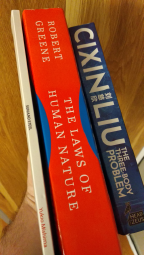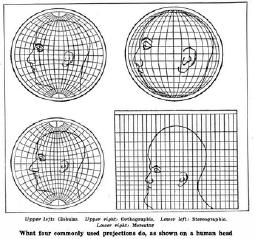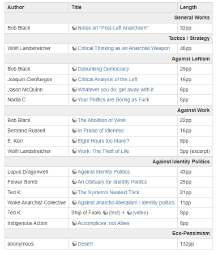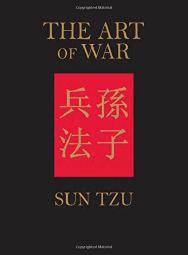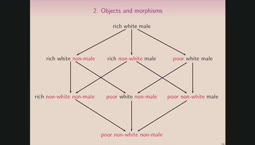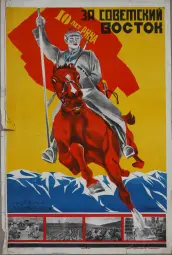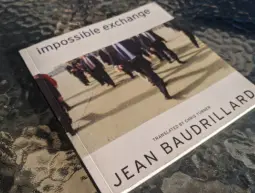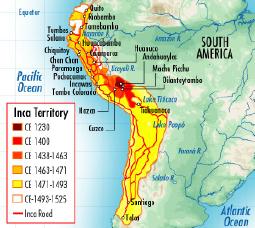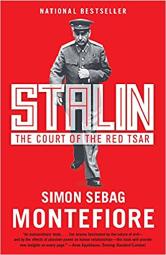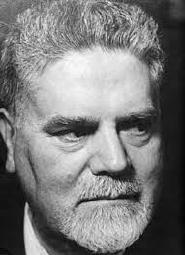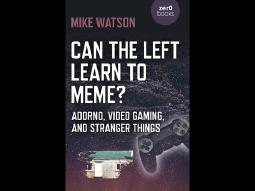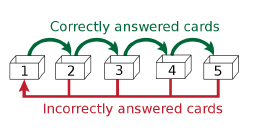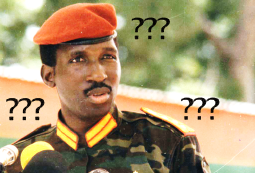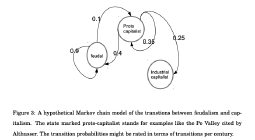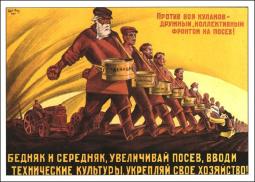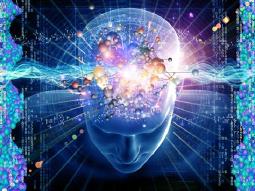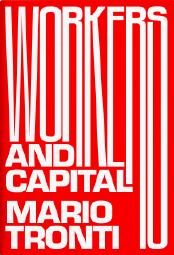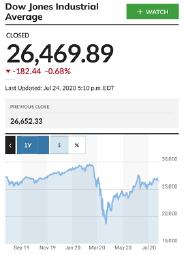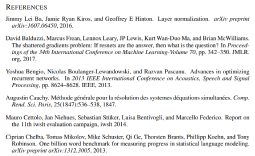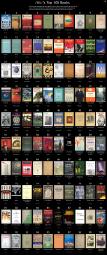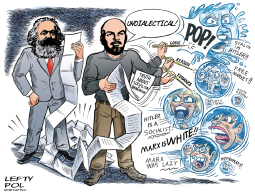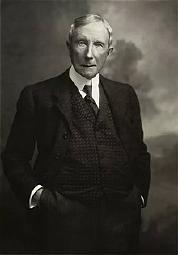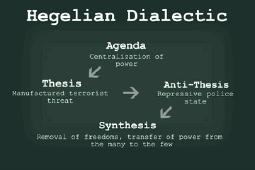
/edu/ checkpoint
Hello comrades. I propose a general thread in an attempt to get the /edu/ ball rolling again. Everytime you visit /edu/, post in this thread. Tell us about what you're thinking about, what you're reading, an interesting thing you have learned today, anything! Just be sure to pop in and say hi.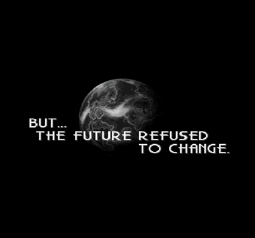
Eugene-lit 2.0
My website has been recently updated:https://eugeneseffortposts.royalwebhosting.net/
Book 3 is out:
https://eugeneseffortposts.royalwebhosting.net/book03/index.html
Following Book 2:
https://eugeneseffortposts.royalwebhosting.net/book02/index.html
And Book 1 (which was originally meant for something else but made the perfect introduction):
https://eugeneseffortposts.royalwebhosting.net/mymethod.html
Consider this the "Eugene general" where you can ask me random questions or bitch at me.

Art during Renaissance
Did the Renaissance change art only for the better?For example, are there any negative things to say about the way music evolved during that period?
All I hear and read about Renaissance art (hell, anything to do with the period, for that matter) are positive things or at least it's talked about in a positive light. Zero criticisms of it whatsoever.

Organising Resources
/edu/ what are some resources that you've used or know of to help newbies learn to organise?Obviously "Just join local X to get experience", but just doing prior reading.
MLs, Anarkiddies, Syndies, etc. All sources and styles welcome.
Just trying to build a little portfolio to read and share.

TSSI
Any enthusiasts of it on the board? I have read a good chunk of Andrew Kliman's Reclaiming Marx's Capital, but I admit that it mostly clears the deck of red herrings rather than makes an argument for a rigorous mathematical formulation of marxist economics.In particular it does explicitly formulate how the tprf leads to recurring recessions (directly or indirectly).
I have an electronic copy of the pic book but haven't read it yet.

the industrial outcome of overcredentialism in college
>Degrees are fucking worthless—limp dick energy.>Jobs that needed high school now want degrees because employers are lazy fucks.
>Student debt piles up like a cum rag, and you’re stuck paying for useless paper.
>Graduates flip burgers with philosophy degrees because nobody gives a shit.
>Employers don’t care about skills—just flash your overpriced diploma like a stripper’s ass.
>Colleges are diploma mills, churning out degrees like a cheap whore.
>Poor kids get fucked—can’t afford the golden ticket to a “real job.”
>Degrees mean nothing when every idiot has one.
>Innovation dies because everyone’s chasing credentials instead of doing cool shit.
>Job market’s a circus—need a master’s to answer phones like a trained monkey.
>Trades get ignored because society thinks you’re a loser without a degree.
>People waste years in college to check a box for some corporate dickhead.
>Employers want PhDs for jobs that pay less than a stripper’s tip jar.
>System’s a pyramid scheme—colleges win, you get fucked.
Society says you’re worthless without a degree, even if you’re talented as fuck.

politically incorrect but reasonable literatures
Thread about planning, programs, laws, and practice (by the state or others) that have the characteristics of being politically incorrect and or morally questionable, but reasonable and or executable.My specific request, give me literature about sterilization (forced or not) of people of color, breeding programs, family planning, and eugenics. Not talking about one of those "nAZi BreeDIng ProgRAm DoeSN't WOrK!!! *insert soy" type of books and documents. I am talking about literatures that actually tells me how it is done and doesn't just smear dung all over it.
>inb4 just go at library and gov websites bro
<no
<I have specific sub mental disability of ADHD that doesn't allow me to do things that even a autist could.

Tim's Vermeer
Excellent documentary on how one man recreated a Vermeer painting. A medieval artist renowned for creating paintings that appear to be taken by a photograph.We built what he believes is an optical machine using only technology of the time, that allowed Vermeer to create his seemingly inhuman masterpieces.
What do you anons think?
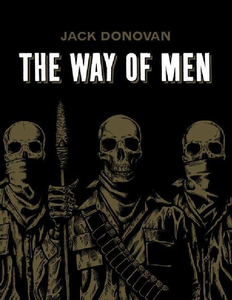
Since most anons here seem clueless about what masculinity actually is, and only seem comfortable posturing about what it isn't, I thought I'd help you.
>The Way of Men
>By Jack Donovan
Read this and maybe (no promises) it will help exorcise the faggy zeitgeist from your skinnyfat body.
While most of you probably won't be able to handle this book (due to deeply engrain ego attachment to muhleftism), a small percentage might. This is for that latter minority.

free tech support for those in need.
Hello,In light of the rapidly changing political landscape globally, I’ve decided to dedicate some of my time to assisting activists in securing their digital safety. While there’s plenty of free advice available online, I’ll be offering personalized guidance through email. (Please exercise caution regarding where and how you seek such advice.)
To receive the free advice, it’s crucial that you send your email from a privacy-focused provider. I recommend creating an account with one of the following services if you don’t already have one:
• ProtonMail (mail.proton.me): During sign-up, you will need to provide a current email. Use an address you fully control—not a work email—and ideally, one that’s not associated with any other accounts. This is also preferred to contact me as its more secure in this case.
• Tutanota (mail.tutanota.com): Offers an easy signup process with no need for a phone number or additional email.
For emails that are not private, I can only provide basic assistance in setting up a more secure email address. This is crucial for both your safety and mine.
Please note that any advice I share is for educational purposes only. I am not a lawyer, and I will not assist in any illegal activities. However, I am willing to support individuals seeking medical treatment (e.g., ab0rt1ons, tr@nsgender care), legal protesters, whistleblowers, and social activists.
I will also be checking in on this thread often.
It is worth noting however since this is as anonymous posting site please use caution in taking advice. As you have no way of knowing its me or some one else.
Best,
Commie-Tech
commie-tech
at proton(dot)me
"Catch a man a fish, and you can sell it to him. Teach a man to fish, and you ruin a wonderful business opportunity." ~ Karl Marx

the holodohoax did not happen. it's a complete lie. it have vague description and changes description every time.
give me things that help me get the message to people that it have vague description and that it changes description every time. post copypasta, papers, books, your own writings, websites, videos, debunks, and etc.

Colleges are only debt traps
petite-bourgeois who must pay their way in thanks to public debt at the proletariat's expense. Proletarians, who have high autism score, get in for mostly for free in America. College is the only hope, otherwise the proletarian must work and die at backbreaking and subsistence wage construction, Mcdonald, or walmart.The problem is all of these petite-bourgeois failsons speculate both in regards to their ability and the value of the degree, not that it is hard to access. These failures cannot get scholarships. Even under socialism, the petite-bourgeois will be price gouged by state monopoly to make way for the proletariat.

Marxist view of the Military Industrial Complex
I don't understand how the military industrial complex creates value.If it doesn't create value I don't think the USA would keep spending money on it, and I don't think the owners of it would be getting more and more rich.
But value is created by socially necessary labour time, and making military stuff doesn't seem to be socially necessary. How can burning so much fuel and exploding ordinance and building vehicles and stuff actually generate value if at the end of the day it just goes poof into a cloud of smoke?
Is it just a tool to extract value from other countries?
I asked chatGPT and it suggested that the MIC is actually a tool to realize value from surplus, by creating an artificial demand for the surplus that's created. That was a very good point I think.
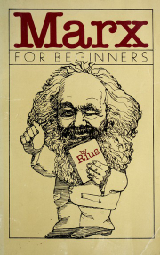
>Noob question
What in dialectical materialism is the explanation for how communism, defined as a classless society in which workers democratically own/control the means of production, is likely or even possible. What real evidence has affirmed this position over the past 170 old years, since Marx was writing about this subject? Like, I can understand that contradictions are inherent in capitalism, but I don't really understand how the resolve themselves in communism. What's the correct position/logic here, or is it something of an article of faith?

The degrees deal
Grad degrees are legit if you have a field with A LOT of information. The higher you go the more specific stuff you learn.The deal is that getting a BA is kind of exactly like high school. You take the same range of classes and don't focus on much. So, it's like a movie that starts an hour in.
Back in the 30s etc you could become a doctor in like four years, now it takes 12 and doctors don't know that much. I mean a general practitioner.
If a four year degree was specialized, you would not need a masters.
In psychology, they try to wear you out with all you must do. So, it's a money hustle and to keep people out.
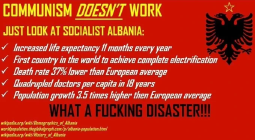
Communism DOESN"T Work!: Just look at Albania!
In Socialist Albania:Increased life expectancy 11 months every year
First country in the world to achieve complete electrification
Death rate 37% lower than European average
Quadrupled doctors per capita in 18 years
Population growth 3.5 times higher than European average
(Further reading: https://etheses.lse.ac.uk/2870/1/U615819.pdf)

Which constructed international language is best?
Esperanto is the most well-known but has many flaws and has no interest in correcting any of them.
Ido is an improved Esperanto but that's like calling it the thinnest kid at fat camp.
Novial is pretty good but it splintered too much towards the end and never recovered.
Occidental isn't bad but it reads like "Novial v0.7".
Interlingua tries hard but it reads like it wants to be all things for all people and winds up being nothing good for anyone.
What's leftchan's take on international languages?

Max Stirner
Hey Comrades! The ideas of Max Stirner (lived at the time of Marx) somehow appeal to me. As I understood he basically says that morality and religious and social norms are void (called them "spooks"). By freeing oneself of these concepts, one can follow one's own will. By cooperation and mutual interest one can then happily coexist and live with other individuals.What are your thoughts on that?

Why is this memed so hard?
still remember this shit from public school(elementary to middle school) where it usually was cut into desks by kids being fuckwits. dont get why/how this is memed so much to make it across pretty much across most of the continents. At least, it pisses off west pests. anyone got any decent insight about this? wikipedia fuckin sucks
Corrupt Company masking as a "nonprofit"
Any one else seen of the scandel that collegeboard has gotten itself into?Long story short, because of coronachan, they did AP exams online, problem is that they had every person in the world take them at the same time, including international students who had to take them very early in the morning like 2 AM.
What should be done about this? Collegeboard also seems to have monopolized education because of the fact that every university and college requires people to take the SAT which collegeboard owns
My idea would be for the government to not recognize it as a nonprofit anymore by taxing the shit out of them.
If they end up raising the prices of their tests, it would prove our point that they are a greedy company in disguise, or its gonna force them to just plain admit that they are a company, and that they will cut back on test costs to gain their nonprofit status back.
Either way fuck this greedy company, Collegeboard is one of the higher powers that is fucking up the American education system

What DEFINES left-wing, centrist and right-wing Communism?
I hear Deng and Bukharin be described as right-wing,Stalin as center,
Bordiga as left –
but then where the fuck would people like Lenin, Trotsky, Mao and Cockshott fit in to this? Lenin had a big shift in positions (before vs after the revolution), Trotsky was clearly very similar to Lenin in positions after, but he often gets called "left" by Stalinists. Mao clearly was more sympathetic to Stalin than either Trotsky or post-Stalin right-wing revisionists, yet he is occasionally slandered as "ultra-left" (which is ridiculous), and then Cockshott went through "ML" (centrist, I suppose) parties, get kicked out for "ultra-leftism" and subsequently writes his seminal work TANS, including a critique of the scrapping of soviet cybernetics in the USSR, bourgeois elements of democratic centralism, and proposes to move towards communism immediately via the DotP through the revolutionary utilization of cybernetics instead of any market mechanisms (market mechanisms seemingly being supported by both right-wing and centrist Communists).
To me, intuitively, it sounds like Lenin, Trotsky, Stalin and Mao, in hindsight, had more in common than they were willing to admit (all "centrists", but how would one divide them into center-left-, center and center-right?), while Cockshott clearly drifted left (toward Bordiga).
I may be missing something, That's why I want to open it up for collective discussion with you all here on /edu/.

3D modeling
Anyone want to journey with me into 3D modeling? I was going to follow along with a blender youtube tutorial, and see where that leaves me at the end of it. Blender is free!https://youtu.be/TPrnSACiTJ4?list=PLjEaoINr3zgEq0u2MzVgAaHEBt--xLB6U
Feel free to post others or talk about modeling in general.

Why humans?
What makes us so special? What makes us different? Humans are primates, when I look at other people I see, in every sense of the word, an ape. We are animals,we look like animals, we smell like animals. Thinking of what we really are makes my head spin.What makes us special? What makes us different? What makes our lives meaningful? Are we even special? Are we even different? Are we meant to be in an unending war for dominance of nature that inevitably ends in our mutual destruction? Are we meant to become stewards of the Earth, the next stage in energy usage for Life, living in harmony with the Earth as its first sentient aspect? Why were there no others, why only us? In 500 million years of animal life, why only Man? Can more come after us, if we go extinct? Is our purpose merely to choose for ourselves why we exist? Are we free, or are we slaves? Why do we individually seem so limited, and yet together humanity seems to be without limits?
What is the dialectical explanation for Man? His consciousness? His relationship to Nature? His drive to spirituality? Is it a misunderstanding on Man's part? Does Man not see that those aspects he has are those he shares with Nature? Gained from Nature? Marx wrote that many species engage in labor; yet seemingly only man labors first in his mind, then with his body. Why are We in this regard?
Our notions of honor, of courage, of willpower, of morality; only we created cultures. And yet, other species experience these emotions from which such ideas rose. Other species experience love. They feel fear. They summon bravery to conquer that fear.
The materialist relation between Man and Nature, between Man and Himself; why is Man, why are We?
These questions, they haunt me frequently, I wish to understand, to Nature we seemingly stand above as gods, and yet we are of Nature, not apart from it; and to us aspects of Nature, like our Sun, like our Universe; they seem yet greater than we could ever hope to be. Help me to understand.
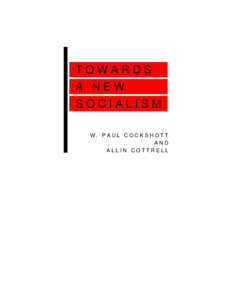
Towards a New Socialism
The purpose of this thread is discuss notes I've written for Towards a New Socialism. I intend to post one chapter's worth of notes per week.I haven't studied much Marxist or socialist literature, so I hope this thread invites constructive dialogue that provides insight and criticizes any mistakes I've made or key points I've missed.
Please avoid citing the OP as I'll be using mentions to track the notes I've posted.
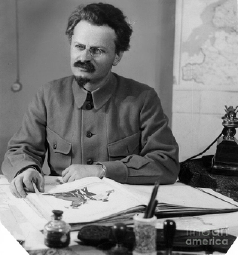
What did Trotsky propose as an alternative to Stalinist bureaucracy?
I keep reading that Trotskyism is about opposition to Stalinist bureaucracy. Trots don't want the means of production to be run by a 'red bourgeoisie' or 'new class' or statist bureaucracy.Ok, that's all well and good, but if not a statist bureaucracy then who?
Who would Trotsky say should plan the economy?
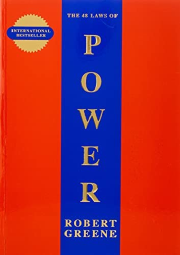
48 Laws of Power Summary Thread
A while back, I wrote a summary of every chapter from Robert Greene's '48 Laws of Power.'If you haven't read it, I'd highly recommend. These summaries don't do the book justice, since I've stripped away the historical anecdotes and quotes which really make the work come to life. However, I think there are still some interesting tidbits and lessons in these summaries, so I thought I'd share.
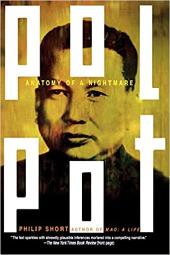
Positive books on Pol Pot and Khmer Rouge.
Most of the books I see about Pol Pot, Khmer Rouge and Kamdoji from those years portray these things as badly as possible, and compare Pol Pot himself to a mini Hitler, or worse. I would like to know if there is a book that justifies Pol Pot and speaks positively about him and the Khmer Rouge. Thank you in advance!
>have you taken the Hermetic Pill?
The Hermetic Principles provide a deep understanding of the workings of the universe and how we can align ourselves with the natural laws that govern it. Each principle offers practical advice that can be applied in our daily lives to improve our wellbeing, relationships, and spiritual growth.
>Principle of Mentalism.
This principle highlights the power of our thoughts and beliefs. Our minds are powerful tools that can be used to create our reality. By focusing on positive, constructive ideas, we can attract abundance and happiness into our lives. Conversely, negative and self-limiting thoughts can hold us back and limit our potential. To use this principle effectively, we must learn to cultivate a positive mindset, practice gratitude, and visualize our goals.
>Principle of Correspondence.
This principle emphasizes the interconnectedness of all things in the universe. Everything is connected, and what we do to others, we do to ourselves. Understanding this principle helps us cultivate empathy and compassion for others, as well as for the natural world. By recognizing the impact of our actions on others, we can make more conscious choices and act in ways that benefit everyone.
>Principle of Vibration.
This principle recognizes that everything in the universe is in a state of vibration. Our thoughts, emotions, and physical bodies are all vibrating at different frequencies. When we are in a state of harmony, we vibrate at a higher frequency, attracting positive experiences into our lives. Conversely, when we are out of balance, we vibrate at a lower frequency, attracting negative experiences. To use this principle effectively, we can use tools like sound therapy, meditation, and energy healing to raise our vibration and align ourselves with the natural rhythms of the universe.
>Principle of Polarity.
This principle acknowledges that everything has an opposite. There is light and dark, hot and cold, and positive and negative. By embracing both sides of a polarity, we can achieve greater balance and harmony in our lives. Every challenge presents an opportunity for growth, and every setback is an opportunity to learn. To use this principle effectively, we must learn to embrace both our light and dark sides and find balance in all areas of our lives.
>Principle of Rhythm.
This principle recognizes that everything in the universe operates in cycles. There are seasons, lunar phases, and daily rhythms. By understanding and harmonizing with these natural cycles, we can achieve greater balance and harmony in our lives. To use this principle effectively, we can set a daily routine, listen to our bodies' natural rhythms, and embrace the cycles of nature.

Lectures general /LG/
Post video recordings of lectures and announcements for online lectures.>inb4 schitzos like peterson or other rightwingers
this is /leftypol/ faggot
>inb4 Richard D. Wolff
all his lectures i have seen so far are just very basic stuff if you find some more advanced stuff post it
I want to focus this thread on philosophy, history and political economy on an academic level.

Could we have a reading group dedicated to critiquing this book? Despite being reactionary, it flows quite well in a way that makes it pleasant to read(and for our purposes, that's not ideal), so constructing a solid case against the interpretations it makes in each chapter would be helpful for future anons(and our comrades in the "right wing blood sport" thread), no?

Non leftist reading guide for leftist theorycels
Once you've spent 6 or 7 years sperging out on far left literature, it begins to get stale. There is little else to gain from reading another monotonous tract, and you begin to realize that you're not missing one key insight that will lead to the right theory which will suddenly unlock everything.In fact, it's safe to say that sticking with the classical communist cannon and its adjacents, even when you go quite deep, is limiting. You're effectively missing out on a wider world of perspectives.
Obviously, most books are useless trash. But there are a few which combine three important factors - being fun to read, being influencial, and offering somewhat impactful and practical ideas - which are recommendable, even to the stodgiest of Leftists.
Here's my top picks and some additional recommendations.
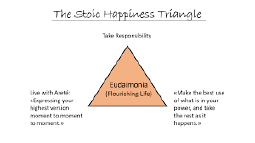
Take the Stoic Pill
>All emotions come from within.You can't always control the external words, but you can control your emotional response to it. Focus on what you can control - namely, yourself. Conversely, if you can control someone else's emotions, you control them. Maintain emotional independence at all costs.
>Bravery and courage are the most important virtues.
Courage isn't absence of fear. Rather, it is action in the face of fear. Most of your problems would be solved if you'd be less of a pussy.
>Develop a bias toward action.
With limited exception, passivity will get you nowhere. Action and movement, on the other hand, will grant you the ability to overcome obstacles. You are not your feelings. You are no your thoughts. You are what you do. Pour energy into taking action on the things you can control. Stop talking or caring so much about things outside your control. The former makes you stronger and more capable. The latter makes you weak and a victim.
>The end or goal doesn't matter as much as practice.
A person who strongly desires to be fit but never exercises won't get fit. Conversely, a person with no particular goal yet who nonetheless exercises daily will reap the reward of fitness.
>Comfort is the enemy.
Comfort breeds weakeness. Contentment breeds decay. Look at obstacles as a means toward growth, and embrace discomfort. It is only through being challenged and facing difficulty that one is able to develop in a positive way.
>Recommended readings:
On the Shortness of Life by Seneca
Meditations by Marcus Aurelius
Man's Search for Meaning by Viktor Frankl
>Inb4
Some miserable, depressed faggot says 'thats all wrong' and claims everyone should be depressed and miserable like them

1932-1933 soviet famine
Can anyone recommend me a good book about the 1932-1933 soviet famine? I am honestly not a communist so I am not inclined to defend/condemn Stalin, but I am interested if someone can offer me a neutral book on the subject.Because from what I've read, many popular books on the subject are complete crap (see link)
https://www.cambridge.org/core/journals/contemporary-european-history/article/turn-away-from-economic-explanations-for-soviet-famines/78C193C97E6C5383C37763CADA970644
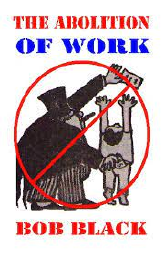
Philosophers book club
On Friday, 2021-10-29, at 21:30 EDT and 18:30 PDT, a friend and I will be reading "Abolition of Work" by Bob Black[1]. We last read "Civil Disobedience" by Thoreau and criticized it from leftist perspectives.What is the best platform for hosting the discussion on to share it with leftychan? We're currently using Discord[2] because it has less problems than Zoom/Facebook/Google but has better moderation tools than Jitsi Meet. Discord is also more accessible for "the general public" than Matrix, etc.
Also just generally paging for interest I guess
[1] - https://theanarchistlibrary.org/library/bob-black-the-abolition-of-work
[2] - https://discord.gg/7JG3Usr6Jv

/t/ - torrents and downloads
Things to share: Movies, documentaries and mainly books.Anything related to socialism, anarchy, communism and so on.
>Absolute beginner material
https://www.marxists.org/archive/marx/works/1848/communist-manifesto/index.htm
https://www.marxists.org/archive/marx/works/1875/gotha/index.htm
https://www.marxists.org/archive/marx/works/1847/wage-labour/index.htm
>More Marx and Engels
https://www.marxists.org/archive/marx/works/sw/index.htm
>Lenin
https://www.marxists.org/archive/lenin/
>Other Selected Marxists
https://www.marxists.org/archive/selected-marxists.htm
>Classical Works Recommended To High-Ranking Cadres
https://www.marxists.org/reference/archive/mao/selected-works/volume-8/mswv8_56.htm
>Many important books can be found on libgen
http://gen.lib.rus.ec/
>Libcom has some good books/documents
https://libcom.org/library
>Other links
https://archive.is/L8uFD
>Various assortment of historical and biographical works.
https://archive.org/search.php?query=uploader%3A%22kocotosi%40gmail.com%22&sort=-publicdate

The beginnings of our new leftypol project
Hello everyone, we have received the results of our project proposal topic, and I'm delighted to announce that we are teaming up with 'leftypedia' to deliver our planned 'argument/talking point resource' idea. In case you don't know, leftypedia is the current version of the old abandoned 'marxistpedia' which was a project started by leftypol users back in the day, so I think this is sort of like a homecoming in a way.https://leftypedia.org/wiki/Main_Page
Anyway, if you have a look at the leftypedia site you might be able to tell that they have a much more formal and 'encyclopedic' tone than what we're planning, just like wikipedia, but the admin is going to create a separate 'category' for our new content that will be called something like 'rhetoric: topic' rather than just 'topic', this will also feature on the frontpage much like the encyclopedic content. As a tenplate, I'd like you to feast your eyes on these pages which someone on leftypedia already made (albeit only on their personal userspace for now).
https://leftypedia.org/wiki/User:Anarcho-Bolshevik/compendium
I'd like to ask if anyone can come up with a slightly more catchy name for our new section than 'rhetoric', cause that sounds a bit cumbersome to me even though I came up with it, so yeah, open to suggestions.
So, since that isn't implemented yet, I'd like you all to try familiarise yourselves with the site for now, maybe take a look at the articles that are already there and improve some of them if you feel able. Unfortunately the site currently has only edit by approval so you will have to wait for any changes you make to be approved, this is because of a persistent spambot problem and I hope that we will be able to work out something to change this to normal editing as on wikipedia and the like, please just bear with it for now.
If you have an answer to a 'common question', or you have an effortpost you'd like to archive and save, then please post it in this topic for now so that we can work on it together until we can figure out how to categorise our new section of the site.
Thanks for your attention!
EDIT: I've now got admin permissions on leftypedia, so I can create pages and approve edits directly. If you want to use the site I recommend you create a user account, which I can then approve once you make a productive edit (to distinguish from spambots), then you won't have to wait for approval anymore and can create articles yourself. Or, just ask me and I can create an article for you if you're desperate to make one as your first edit. Thanks guys, I hope we can make this project cool together!
t. Caballo

Tutnese Discussion and Research
The Tutnese language was by created FBAs to communicate secretly on plantations, according to the fairly scant information on it. The purpose of this thread is to practice speaking Tutnese or dump guides to rules of Tutnese. The video that's embedded here goes into some more details of using Tutnese.
Personal Knowledge Management
What does /edu/ do for knowledge management? Does it work? How important is it? Experiences?I am starting a Tiddlywiki and plan on doing the zettelkasten method. The way I understand it, I just take notes and link them to each other with tags or something? Seems straightforward yet quite useful.

Human Behavioral Biology and explains the basic premise
So I got drawn in this Stanford course, a lecture without homework, a conferrable thing. But it made me thing about a lot of stuff.The teacher is great and even though he doesn't understand the first thing about marxism he's a very scientific dude constantly referring his marxist colleges who tried hard, he gets the materialist thinker part at least.
You can watch the course there, it's fascinating really.
https://www.youtube.com/watch?v=NNnIGh9g6fA&list=PL848F2368C90DDC3D&index=1

/eng/ineering general
A thread for the finest STEM has to offer. I'm sure there are lots of us here. In the end it is the engineers who end up ruling most socialist states somehow.Post anything engineering related: questions, educational material, documentaries, Machines(old and new), your own projects and anything else you find interesting.

/read/ 2.0
Hello and welcome comrades! This is the new /read/ thread.>What is /read/?
</read/ is a collective of marxist reading groups, hailing from /edu/ and /GET/. We are split into various different reading groups, each with different interests, goals and schedules.
We're making a new thread to let everyone know that /read/ is still very much alive. In fact, we're inviting everyone to join in for our new batch of readings! Our groups are done with previous readings, so this is the perfect time for new members to join up!
As of today, May 30th 2021, the /sniff/ group is done reading volume 1 of Capital. We have a new batch of readings planned (more on that in the post below), and all are invited to join. Meanwhile, the /tilmeeth/ group is gearing up to read Capital, so if anyone missed out on the first round, this is your chance.
As always, our website, containing our library and reading lists is: https://leftyread.neocities.org
And our Matrix Community, where all discussion happens, can be found at: https://matrix.to/#/+leftyread:matrix.org
Old thread: >>3624
Come /read/ with us!

The Indian Navy Strike 1946
I was reading a book by Laal Khan on the history of proletarian and communist struggle in pre-Partition India and I was baffled at the fact that I had no idea about this event. This has to be the greatest rebellion/revolution in India before Partition.>On the eve of February 19 1946, much wider layers of the Naval personnel had joined in this revolt. The union jacks on most of the ships of the Royal Indian Navy in the Bombay harbour were torn down and the rebel sailors hoisted red flags along with the flags of the political parties that were involved in the struggle for independence.
Within 48 hours the British imperialists were faced with the largest revolt ever of their Naval units. The message of this rebellion started to spread by word of mouth and then over the radio (the radio station had been taken over by the rebels) to military garrisons and barracks across India. Some of the leaders of the sailors broadcast the message of the uprising and revolutionary songs and poetry were also broadcast round the clock. The revolt spread to 74 ships, 20 fleets and 22 units of the Navy along the coast. It involved Bombay, Calcutta, Karachi, Madras, Cochin and Vishapatam. On February 20 only 10 ships and 2 naval stations were not in complete revolt.
>One of the effects of this uprising was that the British Prime Minister Clement Atlee was forced to announce that the British would leave India before June 1948.
https://www.marxist.com/1946-rebellion-indian-navy150903.htm

Descriptive Linguistics
>In the study of language, description or descriptive linguistics is the work of objectively analyzing and describing how language is actually used (or how it was used in the past) by a speech community.A language, its rules and words should be determined by the collective people who use it and not by academic institutions and scholars
FUCK OXFORD DICTIONARY, FUCK RAE AND FUCK GRAMMAR NAZIS
ignore the semi-cringy comic btw it was the best pic I could find as OP

Books regarding Indian "socialism"
What are some books or resources to understand India before 90s economic liberalization? I always see Indians claim that socialism destroyed India and they are prospering under neoliberalism. So I want to understand what went wrong economically and politically in independent India before 90s that doesn't neglect geopolitics and global economy of the time.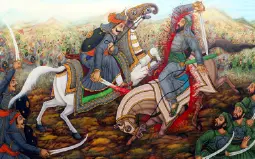
pre colonial indian history
I want to get into indian history that isn't just british colonialism. muslims, hindus and sikhs waring over each other sounds way more exciting but you rarely hear anything about the era and the place.recommend any books to easilly get me into the settings, both books about the cultures and politics.
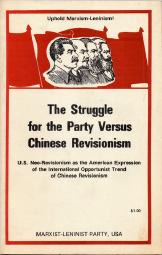
What is "revisionism" and why is it bad?
Some people on the left (mostly Maoists and Hoxhaists) talk about "revisionism" a lot. They say the current government of the PRC is revisionist. They say the government of the USSR after Stalin's death was revisionist. But what actually is revisionism? Like, how was Khruschev's USSR materially different from Stalin's, and why should I care? Is revisionism just "anything I don't like" on steroids?
Pedagogy and /leftypol/
Are there any teachers here?If so, how do you work with your curricula to insert your chosen beliefs?
And what is the most based methodology and pedagogy?
>t. Primary School, Y 4-5, we play "Red Leader" which is basically capture the flag but with special rules, and I put up lots of posters about "working together" and "team work".
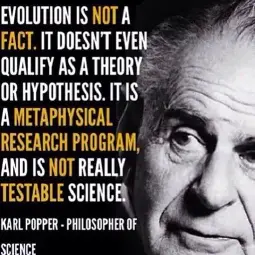
What the fuck with this:
https://en.wikipedia.org/wiki/Paradox_of_tolerance
>The paradox of tolerance states that if a society is tolerant without limit, its ability to be tolerant is eventually seized or destroyed by the intolerant. Karl Popper described it as the seemingly paradoxical idea that in order to maintain a tolerant society, the society must be intolerant of intolerance.
Am I missing something?
The paradox of intolerance is fucking retarded concept and popper could've figured this out if he just exercised the almonds.
Here's the real deal. There is no "intolerance of intolerence" or other stupid word games, there is only intolerance to injustices. This is a re-branded "muh authoritarianism" bullshit. Either there is justice or you implement it by force. Otherwise you're letting injustice exist.
Every time I hear Popper's name, it's always in some ultra-lib cunty context. How is this pseud taken seriously?

The Wealth of Nations
I am going to tackle An Inquiry into the Nature and Causes of the Wealth of Nations by Adam Smith to advance my understanding of the classical tradition of political economy of which marxist political economy is an extension.The german political economist and translator of the Wealth of Nations Peter Thal writes in this regard
>Smith’s work lives on in the proletarian political economics; yes only here his true scientific elements have found a lasting monument
I am currently looking for an equivalent to David Harvey's Companion to Marx's Capital which helped me a lot to better understand Marx howsoever it's important to read Harvey critically
tl;dr: ITT we share secondary literature with regard to Adam Smith and his magnum opus the Wealth of Nations.
in german or english

https://learnsocialism.dropmark.com/554165/25389829
this site good for leftist newbies who want to learn about socialism.
This pdf explains Socialism for dummies. I found it to be very informative.

/wydna/ - Kantbot, Pseudodoxology, Tankerpills, and Wydna
Seems like there are a few people on leftypol interested in this subject so I thought I'd create a thread dedicated to discussing the Wydna collective and Pseudodoxology podcast>What is Wydna?
Wydna is a research collective dedicated to reading history through a unique lens. Taking inspiration from Marxism and Accelerationism, Kantbot and other members of the collective dedicate themselves to uncovering the conspiracies, traditions and ideologies that circle the elites of the British and American Empires. Through their podcast, they discuss secret societies, scandals, and factions of the deep state in a fashion considered unconventional to our current interpretation of history.
>That sounds great, where can I learn more?
Their episodes are paywalled, so that's why I'm making this thread. I will be uploading some of their more noteworthy episodes on request here for those who aren't interested in paying the 5$ a month on patreon.
You can listen to their most popular episodes for free on Spotify https://open.spotify.com/show/45p4IYDT96zuulXl1oH5wW?si=4uuH0B85RjWbbqdEmnwQkw
And I will be filling this thread with links to episodes I consider noteworthy.
I'll start by uploading their episode on the history of political economy, which is 7 hours, so I'll be breaking the audio up into several parts. This post, OP, contains the first 3.

Books about the way in which centrally planned economy such as the USSR worked
Does anyone have some books which explains the way in which the Soviet economy worked? I am looking specifically at how prices and quantities of goods were adjusted to correspond the demands and needs of the people. Although 1929-1953 is nice, I am more interested in the post-Stalin era of 1961-1985. You can also post how plans worked for other countries such as East Germany, Poland, Yugoslavia, etc.I am also searching for technical books which explains in detail how the planning process operates in modern China and how this process relate to the economy and private markets in general.
These books can be pro or anti Soviet style planning, although I'd obviously prefer some books which are advocating for such economic models.

Althusser on Philosophy, Science, Marxism
This is part of the reading series we're doing in the Continental Floppa reading group formerly the anti-Anglo reading group. The plan is to read 1 chapter per week (breaking up chapter 3 into the 3 lectures). This is a selection of lectures and essays by Louis Althusser on the topics of philosophy relative to science and politics. This thread is for discussion and to invite people to the reading group, which can be found here https://matrix.to/#/!mjlMGagFTDhvgxMWhY:matrix.org/Our schedule has recently changed. We now discuss on Sundays.
UTC (UTC +0) 19:00 (5pm) Universal time
EDT (UTC -4) 15:00 (3pm) Eastern US (daylight savings time)
CEST (UTC +2) 21:00 (7pm) Central Europe (summer time)
The next session will be Sunday 27th June, covering essay 1:
Theory, Theoretical Practice and Theoretical Formation: Ideology and Ideological Struggle

Your Personal Top 5 (Five) Sources
So /edu/, what are your personal Top 5 textsLectures, videos, or books that really struck a chord with you or in some way influenced your thinking?
>bonus kudos for links, .pdfs, etc.
>xposting welcome
Hopefully the peeps who contributed to the last thread are still lurking and contribute again, because I didn't get a chance to save all the recommendation last time and it >>332596 died
So much insightful and personal content, gone ;_;7

Baudrillard critique of Marxism
Baudrillard is one of the few who was able to critique Marxism from a resonable and not cucked perspective.Especially in The Mirror of Production his criticisms are from the prespective of some one knowledgeable of Marx.
Now that the dust has settled was he right nearly about everything?
I mean look at China

I have absolutely no understanding of physics, so if anyone who understands it can tear me apart I would be grateful.
Suppose I imagine space as a pool of water. Suppose I push a toy boat across the water. That boat will create waves in the water as it moves, and it would appear that the boat follows the waves. If the wave is affected by some other object, it will change shape and alter the trajectory of the boat.
Wouldn't this show that wave-particle duality isn't really a contradiction? Alternatively, is this sort of the idea behind pilot wave theory? Or (more likely) am I oversimplifying shit way too much and missing a lot of basic knowledge?

250 GERMAN ONE-WORD SENTENCES
Attention! • Achtung!Asshole! • Arschloch!
I won and you lost, haha! / I got this and you don’t, haha! • Ätsch!
Owee! • Aua!
Stand up! / Wake up! • Aufstehen!
Tidy up! • Aufräumen!
Open the door/window/whatever! • Aufmachen!
Close the door/window/whatever! • Zumachen!
Encore! • Zugabe! (shouted ZU-GA-BE to keep in synch with the others shouting it)
Colloquial greeting that sounds like a question. • Na?
Don’t act cocky like that! • Nanana! It basically only exists in spoken form. Some writing attempts use spaces, but that’s like writing Zu ga be.
I’m rating this game/movie/situation/whatever two stars out of five. ★★☆☆☆ • Naja. It’s also a filler word similar to “well“.
Boaster! • Angeber!
Give it! • Gib! (order addressing a single person)
Sit down! • Hinsetzen!
Desirable. • Wünschenswert. (basically “wish-worthy”)
Remarkable! • Bemerkenswert! Bemerken means both “to notice” and “to remark”.
“Good morning”, but saving time by cutting out “good”. • Morgen! (also means tomorrow)
Northern German greeting used early and mid-day • Moin!
Southern German greeting • Servus!
💩Shit! • Scheiße!
What one says when “shit” would be a bit too strong for the situation. • Mist! (literally “manure”)
Breakfast! • Frühstück! (literally “early-piece”)
Bitch. • Miststück. (literally “manure-piece”)
Please. / Here you are. *puts food on table* / You’re welcome. • Bitte.
Thanks. • Danke. Many English words have the letter th where their German brothers have d.
My decision and final word on this issue! • Basta! (from Spanish)
Fraud! • Betrug!
Move! • Bewegung! (literally “movement”)
Hurry! • Beeilung!
Stay! • Bleib! (order addressing a single person)
Uncultured philistine! • Banause! (from Greek «βάναυσος»)
Fatcat! • Bonze! (from Japanese 「bonsō」, “monk”; European usage started with complaints about clerical fatcats)
Whoa! • Boah! This sound shift to b is pretty common when going from English to German.
Great performance! • Bravo! (from Italian)
Golly! • Donnerwetter! (literally “thunder-weather”)
Chaaaarge! • Attackeeee! (Of course in formal writing it does not look liiiike thiiiis.)
Fooled! • Ausgetrickst!
That is ruled out. • Ausgeschlossen. (basically “out-locked”)
Permitted as an exception. • Ausnahmsweise. „Ausnahme“ means “exception”. „Xweise“ basically means “way of X”.
Turn off whatever thing(s) depending on context! • Ausmachen!
Turn on whatever thing(s) depending on context! • Anmachen!
Whatever. • Egal.
Finally! • Endlich!
What one calls a shorter person one wants to bully. • Gartenzwerg! (literally “garden gnome”)
What one calls a weird huge person with bad posture who shuffles around. • Lulatsch!
Guilty! • Schuldig!
Sorry! • Entschuldigung! (Shortening of this sentence to just the last word: “I’m asking many times for de-guilt-ification!”)
What one says when feeling only like ¾ of what would merit a full “sorry”. • Tschuldigung!
What one says when sorry for being unable to provide a service. • Bedaure.
Macabre. • Makaber. It’s from «macabre» by the French who got that probably from the Arabic «maqābir», “graves”.
Just a sec! • Sekunde!
Just a minute! • Minute!
“Good day”, but again saving time by cutting out “good”. • Tag!
Lunch! • Mittagessen! (literally “midday-food”)
Depending on region and trade, this utterance can mean “enjoy your lunch break” or “hello” or “enjoy taking a shit”. • Mahlzeit! (literally “meal”)
Fascinating. • Faszinierend. English words with a soft c often have a German brother with z in its place.
I don’t mind if you do that. • Meinetwegen. (literally “on my behalf”)
What one says to remind a cocky kid that its height does not surpass that of three cheeses. • Dreikäsehoch! Note the shift from ch to k.
Brat! • Rotzlöffel! (literally “snot-spoon”) Yes, a short vocab list like this definitely needs to have more than one insult aimed at children.
Seriously? • Ernsthaft?
Gotcha! • Erwischt!
❌False! • Falsch!
Finished. • Fertig.
Attach whatever thing(s) depending on context! • Dranmachen!
Detach whatever thing(s) depending on context! • Abmachen!
Request denied. • Abgelehnt.
Request granted. • Genehmigt.
Okey-dokey! • Gebongt!
Loafer! • Faulpelz! (literally “lazy-pelt”)
Fire! • Feuer!
Cunt! • Fotze! Once upon a time, this anatomical reference meant “mouth” in the Southern parts of Germany.
How fucking two-faced! • Hinterfotzig! Basically “behind-the-back-cunty” to most German ears. Southerners are less offended.
Brash! • Frech!
Exactly! • Genau!
Ingenious! • Genial!
What one says to somebody sneezing. • Gesundheit! (literally “health”)
Grisly! • Grauenhaft!
Ugly! • Hässlich!
What one says when undecided between “grisly” and “ugly”. • Grässlich! It sounds like the baby of „grauenhaft” and „hässlich”.
Coward! • Feigling! In English, the adjective “cowardly” countains the noun here; in German, the noun here contains the adjective: „feige”.
Weakling! • Weichei! (literally “soft-egg”)
Leave! • Geh! (order addressing a single person)
Great and/or horny! • Geil!
Congrats! • Glückwunsch!
Fatso! • Fettwanst! „Wanst“ already means “fat belly”, so this is basically “fat fat belly”.
The opposite of “Fatso!” • Hungerhaken! (literally “hunger-hook”)
Stop doing that! • Aufhören! The word „hören“ means to hear and you can hear better when you stop doing anything.
Look! • Guck! (order addressing a single person)
Ha! That’s what you’d like to think! (addressing a single person) • Denkste!
Now ya see. (addressing a single person) • Siehste.
See ya. • Wiedersehen. (literally “again see”)
The equivalent of “see ya” for telephone conversation. • Wiederhören. (literally “again hear”)
👍Good. • Gut.
What one calls a person who performs actions signaling moral superiority without bringing much or any positive change. • Gutmensch! (literally “good-human”)
Huh? • Hä?
What? • Was?
That! • Das! It rhymes with the corresponding question. There are a few more such pairs in this set.
Hello. • Hallo.
Upsy daisy! • Hoppla!
Stop! • Halt!
Outstanding. • Hervorragend.
What one says to announce a mindstate between “oops” and “eek”. • Huch‽ (tends to be less self-critical than “oops” & less shocked than “eek”)
Hooray! • Hurra!
Whore! • Hure!
Son of a whore! • Hurensohn!
What one says to the kind of person who can’t remember the translation of this. • Idiot!
What one says when „Idiot“ is a bit too harsh. • Esel! (literally “donkey”)
Interesting! • Interessant!
When? • Wann?
Then. • Dann.
Eww! • Igitt!
Disgusting! • Widerlich!
Yes. • Ja. In the middle of a sentence „ja“ means something like “very” or “surprisingly”.
No. • Nein.
Yes and no. • Jein.
That’s bullshit and you can kiss my ass. • Jaja… (Not to be confused with: 1. „Ja, ja!“ – “Yes, indeed!” 2. „Ja, ja.“ – “Yes, I know that.”)
Now! • Jetzt!
Who? • Wer?
Where? • Wo?
Here!/There! • Da!
Right here! • Hier!
Over there! • Dort!
Enemy of the working class! • Klassenfeind!
Wait. • Warte. (order addressing a single person)
Come! • Komm! (order addressing a single person)
Shoo! (telling toddlers or animals to get out of the way) • Kusch!
Why? • Warum? We also got another word for “why”, „wieso“, and there’s also our OTHER other word for “why”, „weshalb“.

Can attention spans be repaired? I regret ever being introduced to Twitter or Facebook or any of that. I feel like I can't work without looking something up a few minutes later, and then becoming distracted for an hour. I don't wanna completely abandon those social media sites, memes and cat pics are butter for my real life social relationships. Any tips?

Duck Pedagogy
Hello edu, I am a curious yet ADD retard that finds it difficult to grasp anything through reading and I offer you my services;See some people find it helpful to improve their understanding of a topic by explaining it to someone else. If you are one of these people please feel free to try and explain what it is you are working on and I will try my best to grasp what you are saying though active listening.Win win
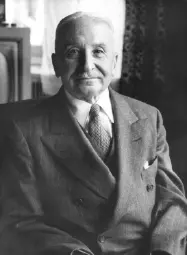
Debunk of the ECP?
Hey friends, I am looking for some good PDFs, videos and takes from you on why the economic calculation problem is incorrect and not a damning critique of socialism.Please note I am not a libertarian, I am relativley new to Marxism and given what I know as far as I can tell other than the world regressing into barbarism the ECP seems to be the only thing posing a true existential threat to socialism.

Marxist History / Historiography
Where is it possible to find modern and materialist history of things?Why everytime i search for something I always have to to through pile of positivist brainlets?
I want a library full of Materialist Analysis of history. Why i cannot find out history of the Mongol Empire and Lamaism without reading through some micky mouse shit about
>lmao they chinks they think like dat
>lmao das tradition mane
>lmao religion says x therfore y happen
why there is no fucking historian who explain the material basis of these thoughts of tradition in the first place? No wonder people are geographically and historically illiterate
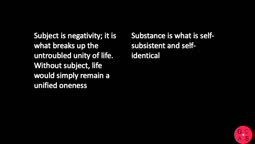
Hegel’s Phenomenology of Spirit
Presented by Todd McGowan
What follows are some very accessible lectures that will walk you through The Phenomenology. It's a great place to start, not only with Hegel, but even philosophy generally. Don't be scared off if you're a layman. Included along with the lectures are a handy glossary of terms and McGowan's own summary. Everything you need to climb the mountain to Absolute Knowing.
Sorry if the recordings are wonky and i had to cut some of these in half due to file limits

Study Habits and digital hygiene
Hey, I've seen this thread before a bunch of times, but upon searching it in the catalog I couldn't find anything.The site is filled up with amazing PDF's that I really want to read, but because I've spent most of my life coasting on general knowledge and cramming, I have no study habits to speak of. I really want to be able to write theory, but to do so I'm going to need a lot more books under my belt.
Additionally I spent a lot of my life playing lots and lots of video games and browsing lots of social media so as a result my attention span is completely fucked. I want to get back to the attention span I had when I was a kid. When I felt like I could stop playing video games whenever I wanted when I felt like reading books were just ss interesting as everything else i wanted to do.
Largely kicked my addiction to video games but I've just supplanted it with social media. The problem seems to be that I need to use my computer and my phone but the distraction and seduction of fast food media is often too great.
Largely kicked my addiction to video games but I've just supplanted it with social media. The problem seems to be that I need to use my computer and my phone but the distraction and seduction of fast food media is often too great.
This thread is for:
-it's about how to build study habits.
-how to effectively organize your time
-Posting your progress and gaining back their attention span.
-how your brain learns and how to maximise that
I'm hoping you can drop PDF's and advice and a thread so that we can all benefit from that. because I think we'd all agree that we could all with being a bit more well read.

/leftyespañol/
Hola /edu/!Some leftypol regulars and I have had the idea to host a language-learning group for us all to learn together.
The language we are all interested in is Spanish, and we'll be using the Micheal Thomas course (>>1033) to learn it.
Here is the plan:
We each listen to one CD of Micheal Thomas every week.
Then on every Friday we discuss what we learned and practice it by trying to make new sentences with what we've learned as best we can.
Then, after we have completed the 'Foundations' part of said course we all switch to speaking Spanish only to keep practising what we've learned and to practice fluency.
This will all start this coming week.
These will be hosted on Element, if you want to join use this link:
https://matrix.to/#/!uDgkvHYaUmWfGUtETA:matrix.org?via=matrix.org

Help with Marxian philosophical reading list
I've been doing a bit of reading on the economic aspects of Marxism, however it occurred to me that I don't know where to start with the more philosophical aspects. I've seen people post Stalin's, "Dialectical and Historical Materialism" and I've occasionally been recommended some works by Bukharin, however I really don't know what order would be best to understand concepts such as dialectical materialism or the base and superstructure or ideology, and so on. Could one of you anons help me figure out how exactly I should educate myself on such topics?
There are people who spend their entire lives reading Hegel and still manage to come out empty handed.
ITT we discuss the great thinker, Karl Marx's teacher, and he on who's shadow we walk:
Georg Wilhelm Friedrich Hegel
1. What are good things to read/view to get an understanding of Hegel from a philosophical neophyte?
2. What service can Hegel's philosophy provide us today?
3. What an be done to make Hegel more accessible to the masses? Why is it so unpenetrable?

Learning philosophy
Is there a website where I can learn philosophy? A website that leads your through and explains to you all larger categories and questions in philosophy? I know there is plato.stanford.edu, but it's an encyclopedia and doesn't lead you through the topics in a didactic manner. I didn't want to learn philosophy by reading a bunch of books, because I have several dozens of books I'm already intending to read.
Marxism-Leninism-Maoism Q&A
This is not a debate thread. I encourage debate on this topic to happen in /leftypol/, as it would have anyway. This is an /edu/cational thread only.Marxism-Leninism-Maoism, the third and highest stage of communist theory, was synthesized in 1982 by the Peruvian Communist Party (known in bourgeois sources by the epithet "Sendero Luminoso"). Here is the document they published concerning this: http://library.redspark.nu/1982_-_Maoism._On_Marxism-Leninism-Maoism
Parties and organizations that uphold MLM theory in the modern day include:
>Communist Party of Ecuador – Red Sun
>Peru People’s Movement (Reorganisation Committee)
>Communist Party of Brazil (Red Faction)
>Red Faction of the Communist Party of Chile
>Maoist Organization for the Reconstitution of the Communist Party of Columbia
>Revolutionary Nucleus for the Reconstitution of the Communist Party of Mexico
>Communist Party of Turkey/Marxist-Leninist
>Committee Red Flag, FRG
>Maoist Communist Party, French State
Red Flag Collective, Finland
>Committees for the Foundation of the (Maoist) Communist Party of Austria
>Tjen Folket - Communist League, Norway
>Committee to Reconstitute the Communist Party of the USA
>Communist Nucleus Nepal
Two other well-known parties are affiliated in part with MLM, although their political orientation overlaps significantly with what we'd call "Mao Zedong Thought" which is not the same thing:
>Communist Party of India (Maoist)
>Communist Party of Philippines

> / t / - torrents and downloads
things to share:Movies, documentaries and mainly books.Anything related to socialism, anarchy, communism and so on.>Absolute beginner materialhttps://www.marxists.org/archive/marx/works/1848/communist-manifesto/index.htmhttps://www.marxists.org/archive/marx/works/1875/gotha/index.htmhttps://www.marxists.org/archive/marx/works/1847/wage-labour/index.htm>More Marx and Engels:https://www.marxists.org/archive/marx/works/sw/index.htm>Leninhttps://www.marxists.org/archive/lenin/>Other Selected Marxistshttps://www.marxists.org/archive/selected-marxists.htm>Classical Works Recommended To High-Ranking Cadreshttps://www.marxists.org/reference/archive/mao/selected-works/volume-8/mswv8_56.htm>Many important books can be found on libgen:http://gen.lib.rus.ec/>Libcom has some good books/documents:https://libcom.org/library>Other links:https://archive.is/L8uFD>Various assortment of historical and biographical works.https://archive.org/search.php?query=uploader%3A%22kocotosi%40gmail.com%22&sort=-publicdate
British Working Class/Labour (not the party) History
Does anyone have any recommendations for books or resources for studying the history and conditions of the English (or British, in the current sense) working class?The two I know of rn is 'The Making of the British Working Class' by E.P. Thompson and 'Conditions of the Working Class in England' by Engels.
I've been told they are classic accounts but they unfortunately only cover the very early period of British capitalism and working class history.
If anyone has any good books and resources that cover past the period these two cover (so anything covering the 1830s and beyond, please post them here.

Biological Basis For Creativity Linked To Mental Illness
>"This means that creative individuals remain in contact with the extra information constantly streaming in from the environment," says co-author and U of T psychology professor Jordan Peterson. "The normal person classifies an object, and then forgets about it, even though that object is much more complex and interesting than he or she thinks. The creative person, by contrast, is always open to new possibilities.">Previously, scientists have associated failure to screen out stimuli with psychosis. However, Peterson and his co-researchers - lead author and psychology lecturer Shelley Carson of Harvard University's Faculty of Arts and Sciences and Harvard PhD candidate Daniel Higgins - hypothesized that it might also contribute to original thinking, especially when combined with high IQ. They administered tests of latent inhibition to Harvard undergraduates. Those classified as eminent creative achievers - participants under age 21 who reported unusually high scores in a single area of creative achievement - were seven times more likely to have low latent inhibition scores.
>The authors hypothesize that latent inhibition may be positive when combined with high intelligence and good working memory - the capacity to think about many things at once - but negative otherwise. Peterson states: "If you are open to new information, new ideas, you better be able to intelligently and carefully edit and choose. If you have 50 ideas, only two or three are likely to be good. You have to be able to discriminate or you'll get swamped."
<being a skitzo is good
<t peaterson
https://www.sciencedaily.com/releases/2003/10/031001061055.htm
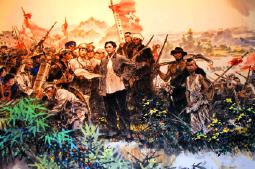
Revolution and State
What are the best books on Russian, Chinese and the failed German Revolution and East Germany.Books about other communist revolutions and state establishments are also welcome.
I want to know everything that happened before and after those events occurred
I want to know how the conditions and reasons for revolution happened in the first place
I want to know what happened during the civil wars
I want to know what happened after they won or lost
I want to know what were the mistakes they made
Don't care how many books to get a full understanding but as long as they're credible and good it's fine by me. I prefer PDFs.

I just accepted a job as a history teacher in china. i dont have a teachers cert and im a little overwhelmed because i want to teach history better than i was taught it.
does anyone have any pdfs/epubs on historiography, philosophy of history and or textbooks on teaching history? i will be teaching to American, New Jersey standards.

Post about interesting historical events, with an emphasis on lesser known ones.
They don't have to be related to "leftism" in any way.
https://en.wikipedia.org/wiki/List_of_nuclear_close_calls
A list of [i]fifteen[/i] cases where nuclear weapons were almost launched or almost detonated. One case was averted due to Vasili Arkhipov being the only one of three senior officers aboard a submarine to refuse ordering the launch of a 10-kiloton nuclear torpedo at an aircraft carrier, which probably would have started thermonuclear war.
https://en.wikipedia.org/wiki/Solar_storm_of_1859
The largest geomagnetic storm on record. Resulted in colorful auroras worldwide and caused serious damage to electrical equipment (mostly telegraphs at the time, some were reportedly able to transmit and receive messages despite being disconnected from their power supply). Another similar-strength coronal mass ejection occurred in 2012, but it was not directed towards Earth.

So I know what capital is but what gives capital it’s characteristics? And if capitalism is capital reproducing itself in ever expanding processes, then what is it? Does this mean that capital only producing commodities which is what the end product of capital is? No this can’t be because that would be engaging in commodity fetishism. If generalized commodity production is then a phenomena of capitalism then in appearance capitalism looks like a world of exchange values and use values in which is the limits of bourgeois economy because on the surface commodities seem to rule life. But if commodities are nothing but a phenomena and nothing but something taking place in the surface then what is actually capital doing?
If the subjective essence of capital is labor then the product or the commodity appears as the central issue and generalized commodity production the fundamental issue of capitalism. But what then is the objective essence of capital and capitalism?
Capital could only be capitalism if it reproduces itself and so the true essence of capitalism is a social relation. And even more fundamental is the conditions for such a social relation to exist. Predicate to the existence of capital is the deprivation of the means of production from the immediate producer whether that be the land, tools, machinery etc. but that’s not the only deprivation, capital itself must be deprived of labor itself: people. And so the fundamental conflict appears to be dead labor vs living labor and those two being deprived of the other. Capital (dead labor) is useless without the labor process (living labor) but in order for capital to be capital it must continue to keep itself separate from living labor and living labor separate from it, with commodity production being the mediator between the two. And so the true essence of capitalism is capital reproducing a social relation continuously in increasing size. So if capitalism’s objective is to reproduce this social relation why do so many people take commodity production as the true essence of capitalism. Or “changing hands” into that of the state? If the point of communism is to abolish this relation of production to a production in common then it follows that capital will seize to exist in contradiction between dead and living labor. We have seen historically that it doesn’t matter which hands capital is put in, it still exists as capital and reproduces capital relations, so what is it with the misunderstanding of the nature of capitalism and it’s social relations and taking commodity production as the fundamental problem and nothing but a mediator that exists in the surface?

Educational Leftist Cytube Channel
Hello all.I want to create a sync channel for educational purpose with different playlist rotations so we can have people getting educated on leftist thought.
This thread I want to construct the best videos on educating people into the basics of socialism. So the basics of the means of production, the basics of property, and etc. I want it simple, easy to understand and yet thorough enough to explain to someone brand new to socialist thought where if they watch this playlist of videos. They can get a handle of what are the core principles of socialism. I also want to make sure these videos are strictly socialist. No social democratic bullshit please.
Please post your suggestions in the thread and I'll check the videos and we work on getting a nice clean playlist of videos. We can discuss videos if I feel it doesn't quite fit what we should build for this thread.
Please don't bring up communism, anarchism, and etc. This is all about the basics of socialism and getting people beyond social democrat thought.
Reason why I want to do this:
People aren't reading theory and books nowadays. It's a harsh reality and it's hard to make people pick up a book and read it. We leftists need to have a fucking reality check on this. We always want to force people to read theory so much and yet when we watch our opponents in other ideology. They are able to explain their theories and bullshit within a few videos and they get their followers locked in. We need to stop making excuses, gatekeeping and general bullshitting. We can do this. I also understand that we are also under attack via social media companies. There is a way to upload video files and such into playlists on cytube. I just haven't done it in a while but I'll be looking into that as well so we can make our own content without being tied to hosting on youtube and etc.
My first suggestion is this video. I like how it focuses on the main points of what socialism is. It touches briefly on the other flavors of socialist but doesn't go too fair into them but the best part is I like how it makes the statement at the end of the video that calling a political system socialism is just inaccurate because socialism is used to define an economic system.
Let me know if you like this idea and this video, and please contribute.

I'm a college dropout in burgerland, and I would like to improve my understanding of math, which was my worst subject in academia. Does anyone here have any suggestions or resources for someone who only speaks English, but would still like to do better than American schooling? Assume that I stopped learning math in 6th grade, or 9th grade for geometry in particular.
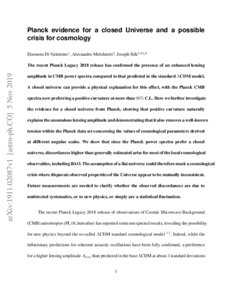
OH NO NO NO
So is the universe flat or is it curved? I haven't had the change to read the whole paper, yet, but, from what I understand from the paper and what the lovely people at PBS explained to me is, apparently physicists at Cornell University observed a cluster galaxies under extreme gravitation forces causing gravitational lensing. Now this is nothing spectacular as far as what observation about the universe has lead us to, but, what is interesting is that when the amplitude of light passing over these distortions in gravity are examined more closely, apparently, they fall way out of line with currently, standard, models involving the geometry of the universe which uses triangulation of areas in the Microwave Background Image and Early Super Nova in the Early universe to summize that the universe is flat. This totally flies in the face of our current understanding of the universe and could have damning implications for modern Cosmology; The universe wont expand for ever? What is driving expansion then? Our models for Dark Energy break down. I am literally freaking the fuck out over this right now. HELP ME EDU!
Science & Society
I'm looking for editions of this journal (current, past). I've checked libgen, sci-hub, MAM, and IRC to no avail. I'm looking for the current edition in particular (https://www.scienceandsociety.com/current.pdf) but anything helps, really.
Indulging Economism
The other day in the China thread, I read an argument about supporting China over Vietnam despite the latter's arguably more "socialist" economy. The reason for support of China over Vietnam would be the fact that the former is most poised in breaking with the established American world order, while the latter is more inclined to appease American interests due to strained relations with the PRC.All that's well and good, but these (nonetheless relevant) geopolitical considerations made me wonder how to study historical and current AES countries' political economies, their evolution, and how they stack up to, for example, western social democracies such as the Nordic countries in their heyday. Again, usually I'd be foaming at the mouth too seeing a comparison of Scandinavia with the late USSR, but from a purely economic standpoint it'd be nice to clear up some of the confusion.
This becomes especially interesting, once again, when bringing up modern-day China. Is it socialist? Is it just social democracy at the barrel of a gun? I feel like it's difficult nowadays to get a purely economic view of that question without involving, again, the matter of nigh obligation to critically support China due to their geopolitical position. Let's change that and drop some PDFs.

Hoarding Books & Not reading
How do you decide what to read?I am so hyper panicked with the idea that there are so many books to read just about leftism and history and with so many perspectives
It overstimulates me and I get stunlocked
What is your procedure and methods to reading in a uniformed structure?

/chem/ - Chemistry
Let's have a thread about chemistry. I can't be the only amateur chemist on here. To please the mods, everything in here is purely academic. Check local laws before you embark on your projects. And before you do anything, make sure you have appropriate safety equipment. Think about the worst thing that could happen to your reaction, because chances are it will. Don't be stupid.Resources
https://www.sciencemadness.org/ The go-to site for amateur chemists
Wiki: http://www.sciencemadness.org/smwiki/index.php/Main_Page
Forums, require email registration: https://www.sciencemadness.org/whisper/
Archive.org has plenty of old chemistry textbooks. The most useful ones for me are those meant to teach youngsters from the early 1900's.
YouTube
NurdRage, the OG channel: https://www.youtube.com/user/NurdRage
NileRed, the internet's premier piss chemist: https://www.youtube.com/user/TheRedNile
NileBlue, secondary channel: https://www.youtube.com/channel/UC1D3yD4wlPMico0dss264XA
Explosions&Fire, energetic materials: https://www.youtube.com/channel/UCVovvq34gd0ps5cVYNZrc7A
Extractions&Ire, secondary channel: https://www.youtube.com/channel/UCvFApMFo_AafXbHRyEJefjA
Cody'sLab, chemistry and physics: https://www.youtube.com/user/theCodyReeder
ChemistNATE, educational: https://www.youtube.com/user/chemistNATE

precapitalist modes of production general /pcmop/
Most Marxists, for obvious reasons, are primarily concerned with the analysis of the capitalist mode of production, this causes many marxists (including myself) to have a poor or just a very basic understanding of pre-capitalist modes of production.An in-depth understanding of these modes of production is, however, essential for reasonable historical materialist analysis.
Post videos, books, articles and so on for education on this topic.

Prussian Language
So I wrote a pdf, on the reconstructed language of old Prussian. This language is actually going through a revival, from what I could gather. Since last year I found a YouTube channel where a family from Lithuania speak this language in a daily basis, and even their daughters speak it. So I got the dictionary of the language, read some posts on their facebook page, and listened to their speech. This pdf is mostly an overview of the language, I am not a linguistic or anything like that, I am just a random guy who likes languages.So I wanted to post it somewhere, and I decided to post it here first, I think that there are some people here that would be interested in this.
The YouTube channel
https://www.youtube.com/channel/UCqhLH_SLh3apNZjSruEXZMg
The dictionary
https://wirdeins.twanksta.org/
A site with good resources
https://bila.twanksta.org/

Samurai thread
Was the Meiji restoration and "restoring power to the emperor" a good or bad thing in 18th century Japan for the peasants? It marked the upper class revolution that caused the samurai feudal system to transition into a capitalist system. (Which ultimately turned into a racist imperialist empire that tried to invade and oppress all of its neighbors in Asia in a sort of fascist system, and as Japan lost the war the people starved and suffered greatly.)I just found this photograph btw. Samurai didn't look nearly as impressive as I thought they would, and that hairdo is "objectively ugly."
There were a lot of peasant revolutions/movements that tried to go against the samurai but they all ultimately failed so no one except historians talk about them. Unfortunately too, the people who study Japanese history appear to be mostly weebs who romanticize the samurai so much that you never get to hear about the peasents' movements.

Unfounded Axioms in Marxism
So, what I hear from from liberals, reactonaries but also some communists, is that a lot of Marx's concepts and categories are not empirically proven and just based on prior assumptions Marx makes(ie Dialectics) or based on his own morality. One of these categories disputed by liberal "intellectuals" is surplus value or profit in their view. They argue, that it only exists as an entity if you accept Marx's epistemology. Is it true?This shouldn't be only about surplus value but about whatever seems to fullfill the premise of being an unsupported claim in Marx's works. Communists like Althusser insist that there are remnants of Hegelian Idealism in Marx that make some of his claims unscientific. Is there truth to that too?
>posting in /edu/ since I hope to get some good answers in this thread

bunkerchan backup
I've made a backup of the bunkerchan.net /edu/ and /tech/ boards, since a couple of users mentioned that there were still some useful semi-active threads.This is a direct offline mirror, those two boards should work properly. To enter, open /edu/index.html or /tech/index.html.
https://anonfiles.com/f4zd85u7u9/bunkerchan-edutech-archive_zip (about 400MB)
Let me know if there are any issues.

The Soviet Archive
Where do you find a comprehensive access to the Soviet archive? I really want to do more research using primary source to debunk reactionaries and Wehraboos. But trawling through the entire thing is just so time consuming.There’s a recurring problem with modern history books (and other entertainment forms) in the Anglo sphere where they always cite Cold War era history works which in turn cite Nazi, gusanos or just made up garbage (The gulag archipelago being the biggest one).
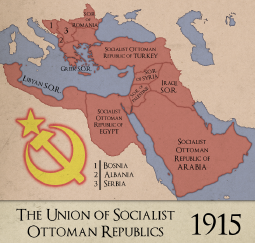
Islamic terrorism and the Geopolitics of WANA
International Islamic Terrorism and it's effects in the WANA region. Tell me about it. What are some good books on them and their ideology.The rivalry between pro-MB Qatar, Turkey and the Wahhabi Saudi Arabia and UAE. How long has this rivalry been brewing. Now days Qatar is presented as a terror financing bogeyman in Pro-Saudi media. They blame it for financing almost every terrorist group from Al-Qaeda to ISIS to Hezbollah. And even blame it for funding local opposition in the states that boycotted it: Saudi Arabia, Egypt, UAE, Bahrain. Explain this rivalry to me. And how is it affecting the region. And what truth does the boycott allegations have?
https://youtu.be/qqETCuff4lw
https://youtu.be/vJyrbw7dvR4
Reasons of the boycott by AlArabiya: https://youtu.be/8Nj4TgxoBto
UAE-funded news on Qatar and the MB: https://www.thenational.ae/opinion/editorial/the-west-must-wake-up-to-the-muslim-brotherhood-s-malevolence-1.977207
Also refute this: https://youtu.be/lxp-HDSARXs
pic unrelated

Leftypol Thread for the Study of the Juche Idea
"The Juche idea is a man-centered world outlook. It is a revolutionary, scientific, and political theory that accurately illumines the way for realizing the independence of the masses." - Kim Jong IlDiscuss the Juche idea, it's merits, similarities and distinctions from Marxism Leninism, post pdfs, videos, documentaries, and other educational material for coming to a proper understanding of the Juche idea and it's implications. I'll start off the thread with what is often described as the authoritative text for laying out the philosophical and socio-historical principles of the Juche idea, "On The Juche Idea" by Kim Jong Il.
https://korea-dpr.com/lib/Kim%20Jong%20Il%20-%204/ON%20THE%20JUCHE%20IDEA.pdf

Is highlighting books good or a waste of time?
Title says it all mostlyIve heard studies say that it doesn't affect the ability to recall the information highlighted, but could it be good for if you want to skim through the important points of the previous pages you've already read/highlighted before you continue on?
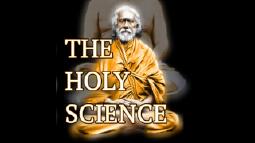
Scientific Spirituality
We have some threads on religion and what not, but I think we should have one taking "spirituality" as a developing science. I feel "spiritual science" isn't "anti-materialist" in the same way that quantum physics is not anti-classical physics. I'm also not saying to woo woo quantum physics into some kind of justification of spirituality. All of these things may be true and seemingly separate because of our lack of knowledge between the connections of these various phenomenon at different levels.As for myself. I used to be a hardcore skeptic. I used to laugh at my Chinese friends telling me about Chi power and herbal medicine and whatnot. I remember my brother was interested in Chi-Qong and I brushed it off as at best a primitive understanding of understood biological processes. I had my first experience with Salvia Divinorum and immediately it was like my skepticism and my attachment to crude understandings of accepted science was blown out the window. I remember at the time I first encountered it, my inclination was to try and get some people smarter and more knowledgeable in physics and quantum physics than myself to try and encounter these kind of experiences and see what there interpretation would be. I've had many more experiences off and on various psychedelics since than, Marijauna, Mescaline, and LSD since than, and frankly, in the right state I feel like even completely sober, I could induce altered perceptions in myself and in others, but I feel like certain people who are attached to their learned perspective of reality are internally/sub-consciously afraid of ever opening themselves up to alternate perspectives. I am very hesitant to get myself involved with other people who are into this kind of stuff, because I feel like many of them, especially religious types, are victims of superstitious beliefs and understandings of these experiences and phenomenon. Yogis have talked about the high-probability of falling into superstition when encountering the spiritual unknown. It's really not hard to believe when we consider the history of accepted science. People not to long ago believed that flies spontaneously spawned from rotten food. A fault explanation of a phenomenon, does not negate the underlying phenomenon described.
There used to be in The West a high interest in spiritual science in the late 1800s early 1900s(Edgar Cayce, Dione Fortune, etc.) but all of that got kind of pushed to the periphery but still existed with some prominence with The US and Soviet remote viewing programs and suchlike. I think there should still be interest in this area of research and especially with people without such a narrow view as The US MIC. Also with people willing to objectively analyze such phenomenon, neither superstitious cooks nor "rational skeptics" who want to dismiss everything outright because of their own personal hang-ups with their own personal experiences with organized religion.
As for myself. I feel like I've experience enough and know enough where I could demonstrate the reality of "psychic phenomenon" on command in a controlled environment to prove it exists. Of course, even if I could prove it exists, it doesn't prove a soul or God, or whatever belief system one would want to extrapolate from it. But personally, I've seen enough to believe that the realm of accepted science can't explain the mechanisms of human life and our interaction with our environment.
So this thread is for the premise of investigating "spiritual" and "psychic" phenomenon in an empirical and scientific manner and accepting the possibility that there might be something there beyond "magic tricks," Charlatanism, and wishful thinking.

What is Capital?
Why isn't communism the same as liberalism? Why didn't Marx become a liberal while writing Capital? Before the critical turn of the enlightenment the purpose of most philosophy was grant intellectual legitimacy to dogmas, or pre-existing state of affairs or beliefs that are taken for granted. Classical political economists and those that came before them (Hobbes, the Physiocrats, others) were similarly uncritical; the categories of political economy were explained, but not criticized. Vulgar economists (most economists today) don't even bother with attempting to understand the categories or the social relations they're made up of, and spend their time building models of different elements of capitalist production for the purpose of making it more efficient. It's no coincidence that "economize" means "to make more efficient", that is the sole aim of vulgar economics.Where does Marx depart? Marx takes the materialist analysis of the political economists, their categories and terms, and constructs from these building blocks an immanent critique of capitalist production. Capital isn't liberal because Marx takes the materialist analysis seriously, he criticizes without reservation the most basic elements of exchange and the religious affectation of participants in the exchange with its elements (read Marx on commodity fetishism). We can't seriously call Capital, which is the most thorough rupture with political economy ever written, an economics textbook.
>Check reply for more, you know who you are

Thoughts on Dostoevsky?
Writer worth reading or reactionary garbage?Lenin apparently wasn't a fan; from "The Other Lenin" by Alexander Maysuryan:
> ["Demons" is] Evidently reactionary filth, like Krestovsky's "Flock of Panurge", I have absolutely no desire to waste time on it. I have no need for such literature; what could it possibly give me? […] I have no free time for this garbage."
Demons isn't the only book he doesn't like:
>I am familiar with the content of both these pungent works, and that is more than enough for me. I just about began reading the "Brothers Karamazov" and then dropped it: the scenes in the monastery made me sick."
However, Stalin apparently enjoyed Dostoevsky greatly. He had a heavily annotated copy of "The Brothers Karamasov" and at least once referred to Dostoevsky as a "great philosopher." Quote:
> [Dostoevsky is] a great writer and a great reactionary. We don't publish him because he is a bad influence on the youth. But he is a great author.

Chinese dialectics
Dialectical thinking is not only a western concept. There is a native Chinese tradition of dialectics within Taoism, that while similar to has some interesting differences when compared to western dialectics. Is this something worth exploring? It was very influential to Mao's thinking. Not to sound to much like a libtard but it seems exploring non western philosophy might be an interesting way to gain insights that might be otherwise ignored.
I'm not sure if anyone is interested, but I've created a playlist of all of jacque Fresco's classic lectures from tapes 1-20. The audio is a little hard to hear, so you may have to wear headphones or earphones, but the audio is relatively fine.
https://youtube.com/playlist?list=PLiADn3rLZsazUnhTlBCgiD9MaxPCANwD-

Hello and welcome comrades!, this is a reading club thread, we will be reading and discussing Marxist theory books.
We've already started and completed reading and discussing The Communist Manifesto and The Principles of Communism yesterday.
Anyone can join the reading club, if you want to read and understand theory and you're serious about it then don't be afraid to join! we're still reading the basics so you don't have to be intimidated.
Our current reading list:
https://leftyread.neocities.org/
/leftytrash/ matrix community link:
https://matrix.to/#/+leftytrash:matrix.org
/read/ matrix room link:
https://matrix.to/#/#leftyread:matrix.org
Also we are closely related to the /GET/ Reading group who helped us make our own reading group:
https://www.getchan.net/GET/res/469.html

>muh fire
>muh artemis
>muh bow/harp
>muh death/play
>muh wisdom in ordinary things
>But he had himself withdrawn into the temple of Artemis in order to play knucklebones with the children; here, the Ephesians stood around him, and he said to them: “What are you gaping at, you scoundrels? Or is it not better to do this than to work with you on behalf of the πόλις (city)?”
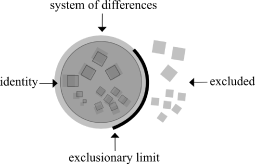
Ideology and the real
I thinking i'm making the mistake of mixing postmodern thinkers and marxism without a good philosophical base. Zizek’s conception of ideology is based Lacan’s idea of the “real”, a primordial element that can not be discovered through any scientific analysis. The Orthodox marxist conception of the ideology is in relation to material reality of class relations. Ideology is what leads to “false consciousness”. Im I grasping it wrong? If Zizek doesn’t believe in the existence of an objective reality , Can he really be a marxists? Also wtf is the "lack in the symbolic Other". Can somebody help clarify?
why do orthodox Marxists want to eventually abolish money
and how do they plan on deprecating money itself? I know labor vouchers is usually the system that’s brought up but it doesn’t seem like Marx himself was thrilled about it, he just said it could be temporarily used in a workers’ state. I don’t understand how he planned on deprecating it afterwards. Cockshott expanded upon this by adding that they could be digital so that people wouldn’t be able to trade with them. but how does the act of trading currency inherently promote labor alienation? I understand how under private property it does, but in a collectively owned means of production I don’t see why it’s a problem, or why it’s any better than the currency system of the Soviet Union.tl;dr why do orthodox Marxists believe no banknotes at all > labor vouchers > money?
pic unrelated.

Volume II Reading Group
The Bunkerchan (rip) Capital Reading Group recently finished Volume I and will be reading Volume II starting the second week of April! If you wish to join grab a copy of Penguin classics and be able to commit to a once a week discussion on Sundays - we are all US based and typically meet around 9 EST.Expect to read 50-80 pages a week. We will not be covering the introduction or preface, but you are encouraged to read it before the group officially starts.
We will be reading Volume III after our reading of Volume II. And I wouldn't mind tacking on Marx's Grundrisse as well.
Group channel:
https://matrix.to/#/!yiDRNQUOWVfxjUAqli:matrix.org?via=matrix.org&via=pixie.town&via=matrix.volguine.com

Why Foucault is so criticized?
I'm a 100% Debordian doomerism cuck and the only thing i've read from Foucault is Discipline and Punish which I didn't even finish. I don't understand why he gets so much shit from everyone.His writing style is pretty simple and I don't think he says anything absurdly stupid.
I've tried reading Forget Foucault but it's inaccessible even by Baudrillard standards.
Can someone give me a quick rundown? And what's your opinion on him? Is it true that he basically became a neoliberal at the end of his life?

Marxist Humanism
Is Marxist Humanism the most correct interpretation of what Marx was getting at philosophically on the objective of communism? Marx only ever truly critiqued political economy and never focused on creating a new society and spoke of its political and economic structure because that was what utopian socialists and vulgar economists engaged in.The goal for Marx understand the social economic relations of his time to understand why they existed in the first place and understand what bourgeois economists failed to understand in trying to create systems and economic categories to explain what they failed to get to the heart of. So the object was the liberation of the particular which would follow by liberating the social whole. The freer the individual the freer the social whole. This meant the liberation of not just the worker but also the liberation of the capitalist from their subservience to capital, which society itself created the conditions for and has created the conditions for the liberation of itself from it.

Please waste no time on Hegel!
https://paulcockshott.wordpress.com/2020/04/28/please-waste-no-time-on-hegel/
Books on U.S Intelligence Agencies
Requesting books on the U.S Intelligence community, especially the CIA and NSA. I'm interested in their history, anything they've been involved with, how they work etc. From a leftist perspective would be appreciated as well. Currently reading Surveillance Valley by Yasha Levine, which is pretty good for some basic observation and history.
Native American Research Thread
I thought that it might me interesting to have a research thread on Native Americans (meaning all of the American continent). I've become very interested in the subject after reading about their culture and way of life, which was much more complex than colonizers initially believed. I'll embed a video which talks about various things about pre columbian civilizations, like how the populations may have been as high as 100 million before disease wiped out many (disease likely went a head of europeans too, so what settlers saw was basically post apocalyptic). Also, what we're now finding out about how humans initially arrived is very interesting too as there were likely some migrations by boat through the pacific by Pacific Islanders, who were incredible at navigation.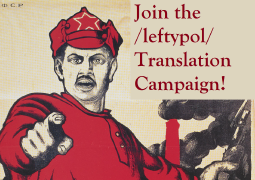
Translators Wanted! Traducteurs recherchés! Übersetzer gesucht!
If you know French or German, please contribute a chapter to /leftypol/'s first crowdsourced translation project! This project started on >>691.The book is Karl Kautsky's history of the French Revolution, originally published as Die Klassengegensätze im Zeitalter der Französischen Revolution in 1889. Coming from the "Pope of Marxism", as Kautsky was then known, this text likely had an immense influence on Lenin and other revolutionaries of his day. It was approved by Engels himself, and may have been foundational in establishing the Marxist theory of bourgeois revolution, yet it has never been translated into English. The original German is available here: https://www.marxists.org/deutsch/archiv/kautsky/1908/frev/index.html and an old French translation is available here: https://www.marxists.org/francais/kautsky/works/1889/00/antagonismes-table.htm
What makes this work especially good for us to translate is that it's relatively short - just around 60 pages in total, divided into 10 chapters. With each chapter being 5-7 pages each, it is conceivable to translate a chapter in one day's volunteer work. Comrade Akko has already translated the preface, and is working on chapter 1. That leaves 9 chapters to complete:
Preface: Complete!
Chapter 1: Second draft complete (French)
Chapter 2: Draft complete (French) - Proofreading complete (English)
Chapter 3: Draft complete (French) - Proofreading in progress (English) - Proofreader needed
Chapter 4: Draft complete (French) - Proofreading complete (English)
Chapter 5: Draft complete (French) - Proofreading complete (English)
Chapter 6: Draft complete (French) - Proofreading in progress (English) - Proofreader needed
Chapter 7: Draft complete (French) - Proofreading in progress (English) - Proofreader needed
Chapter 8: Complete! (Copyrighted work, permission secured)
Chapter 9: Draft complete (French) - Proofreading in progress (English) - Proofreader needed
Chapter 10: Translator needed
If you don't speak French or German, you can still contribute! We need proofreaders for completed chapters, and historical experts to confirm / resolve contextual clues in the text.
If we are able to complete this project, it will be uploaded to marxists.org under /leftypol/'s name, and maybe win us some name recognition from the broader left in the process. We can do this!

Materialist Analysis of Anti-Semitism
I became interested in understanding the phenomenon of anti-semitism from a materialist perspective, this discussion will proceed from Karl Kautsky's perspective of its origin, laid out in "Are the Jews a Race?".>https://www.marxists.org/archive/kautsky/1914/jewsrace/ch06.htm
>https://www.marxists.org/archive/kautsky/1914/jewsrace/ch07.htm
These two chapters from Karl Kautsky's "Are the Jews a Race?" trace the long journey of the Jewish people from their homeland in Palestine to the European diaspora, at which point they lacked a territory/administration of their own. Kautsky explains how Jews were integrated into the feudal economy in certain roles, primarily those suited to cities and outside of artisanal production (which was regulated by guilds). These roles happened to be non-productive roles of mediation, like trade, financial roles, and intellectual roles. There were exceptions and variations across Europe, but due to religious pressures, social norms, and rules, they were largely prevented from assimilation. The economic role of the Jews was reified by the racialists as innate aspects, and this forms the basis for anti-semitism. Therefore, through a materialist analysis, which discovers that social groups are determined by material circumstances and not innate qualities, it becomes plain that anti-semitism is opposed to materialism.
Please share your thoughts on alternative explanations for anti-semitism, especially in its modern form. At this point, Jewish people are assimilated into production at a high degree, to the point where the average person cannot distinguish them as a group. Could it just be a feudal remnant? There needs to be a new theory to explain phenomenon of anti-semitism under present conditions.

Audiobook:
https://www.youtube.com/watch?v=XRNuTHEmgKU
Civilization and Its Discontents is a book by Sigmund Freud, the founder of psychoanalysis. It was written in 1929 and first published in German in 1930 as "The Uneasiness in Civilization". Exploring what Freud sees as the important clash between the desire for individuality and the expectations of society, the book is considered one of Freud's most important and widely read works, and was described in 1989 by historian Peter Gay as one of the most influential and studied books in the field of modern psychology.
Feel free to post your thoughts, lectures, secondary reading material.
A reading group gets together Saturdays around 22 UTC and this is the next text to be discussed.

>Be once in a millennia genius
>Writes big book detailing and explaining all his ideas and findings
>Explains something via a concept that he hasn't laid out yet and without which nobody can fully understand the explanation
>"Oh, don't worry anon! This concept I use here will be explained in chapter 7 of Volume 3 of this work"
>Goes on eating drinking and smoking like a pig
>Dies before he even finishes Vol 2
>Leaves Engels to guesstimate and extrapolate what he meant
Thanks, Karl, not like we needed all the knowledge we can get to fight the most powerful oppressive force in human history or nothing

AnNil Reading Group.
Hi. Is there anyone interested in doing an Anarcho-Nihilist reading group? The purpose would be to help get a better understanding of the individualist/nihilist/'post-left' currents in anarchy.I have a few text suggestions but i'd like to reach concensus if not do a poll on what to read.
Also, let this be a general PDF repo for non-leftist anarchist thought.

Whatever happened to the free/open culture movement?
In the late 00's there was this big push against copyright law and in favor importing/adapting the values of free software to general culture and media but once we entered into the 10's it puffed away like if it had never existed.
I made this same thread on lainchan months ago and one of the answer said that "Copyright law became more flexible and managed to adapt to the internet making Creative Commons and the like irrelevant" and that's truth, the issue now is if a free culture is still worth fighting for when it seems like content creators are protective as ever.

Youtube scientific vulgarisation
One of the recent trend in youtube video productions, and one of my favorite and best thing to come of this media imo, has been the birth of various field experts that start doing the work of actually explaining to the enthusiast various knowledge relevant to their skills, an act know as "vulgarization".Vulgarization has always been a concern of science, because sharing the knowledge is an important part of the process, and many advances are made from people who just happen to have some relevant knowledge to a problem in their own field, or who need a problem fixed and hear of a new thing that might be applicable to their case. Nobody can build upon a knowledge he does not know yet.
But it was sadly limited by the need for the expert to use intermediaries, such as "science journalists", to reach a wide audience, with all the misconceptions someone not educated on the subject can bring, and the high cost for the enthusiast who'd like to know more of a subject, but can't really justify going to a specialist conference far away where he won't understand half of it just cause a subject sound interesting.
Youtube has allowed some of these more pedagogic experts to do focused vulgarization on important piece of their fields, with often surprising quality given the lack of financial means.
So here I will share my favorites ones, and ask you to share if you know of any good ones yourself, because sadly, all the ones I know of are in my own language.
First, Homo Fabulus, a biologist.
I recommend taking a look at his serie on morality, and it's potential biological origin.
https://www.youtube.com/watch?v=1jkIONNqBcg&list=PL8mPrvnM78yJ78OqgF4xtvJyOvJTeWjiz&index=1
(note: it's in french, but for that one there are english subtitles available)
Then, in rapid succession, cause they're in french only:
Mr Phi for philosophy : https://www.youtube.com/c/MonsieurPhi/videos
Science Etonnante, some preference on physics but will talk about all groundbreaking research regardless of field : https://www.youtube.com/c/ScienceEtonnante/videos
DirtyBiology, more biology: https://www.youtube.com/c/dirtybiology/videos
Fouloscopie, social psychology : https://www.youtube.com/c/Fouloscopie/videos
Horizon Gull, more social psychology, with special interest in cognitive bias and opinions : https://www.youtube.com/c/horizongull/videos
Sur le Champ, history and military tactics : https://www.youtube.com/c/Surlechamp/videos
Le vortex, generalist science/entertainment : https://www.youtube.com/channel/UCZxLew-WXWm5dhRZBgEFl-Q/videos
Linguisticae, language : https://www.youtube.com/c/Linguisticae/videos
No idea why youtube never recommended me some english ones, but I hope they also exist and some comrades have recommendations.
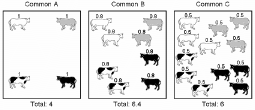
writings about the REAL "tragedy of the commons"
I've seen in a lot of leftist YouTube videos Communists typically respond to the "tragedy of the commons" argument by referring to the history of Europe and how lands that were actually held in common ownership had private property introduced by force to alienate people from their means of production. are there any books that elaborate on the history of private property in detail, with reference to specific political leaders, parties, and events?
Metaphysics and Idealism
There's been alot of talk lately of Metaphysics and Idealism as bad andf wrongContrary to Materialism and Dialectics which is the right method worldview etc
But I got the feeling alot of people use Idealism and Metaphysics interchangable without really understanding both
So I want to start a constructive discussion about these things
I'll start with a quote
The two basic (or two possible? or two historically observable?) conceptions of development (evolution) are: development as decrease and increase, as repetition, and development as a unity of opposites (the division of a unity into mutually exclusive opposites and their reciprocal relation)The two basic (or two possible? or two historically observable?) conceptions of development (evolution) are: development as decrease and increase, as repetition, and development as a unity of opposites (the division of a unity into mutually exclusive opposites and their reciprocal relation)
-Lenin
The metaphysical or vulgar evolutionist world outlook sees things as isolated, static and one-sided. It regards all things in the universe, their forms and their species, as eternally isolated from one another and immutable. Such change as there is can only be an increase or decrease in quantity or a change of place. Moreover, the cause of such an increase or decrease or change of place is not inside things but outside them, that is, the motive force is external. Metaphysicians hold that all the different kinds of things in the universe and all their characteristics have been the same ever since they first came into being. All subsequent changes have simply been increases or decreases in quantity. They contend that a thing can only keep on repeating itself as the same kind of thing and cannot change into anything different.
-Mao

NEET General
This thread is for us NEETS to help each other and give tips to aspiring NEETSFor example how to get NEET buxs
How to cope with the mental consequences of beeing a NEET
how to overcome the creeping loneliness and slow mental declince
How to occupy yourself during these long boring lonely nights
I'll start I really love nightwalking the night time is my only possibility to get out of my room without having to cope with the anxiety that comes with going outside
So that really gives me the possibility to get some fresh air and exercise without stressing myself out
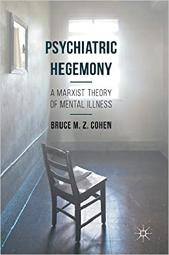
Psychiatric Hegemony
Has anyone read this book or knows something about it?I heard about it some time ago and read a small part of it about bipolar disorder. It sounded fascinating but for some reason the book costs like 80 bucks so I cant afford. Is anyone able to provide a pdf or knows a place where one could get the book cheaper?
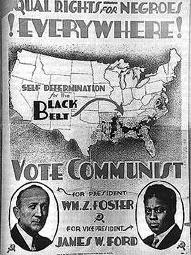
Books for normies about the structural causes of poverty in capitalism
I have a mate who's an Eastern European. He perceives himself as "self-made" because he escaped from childhood poverty in the 90s and he thinks other people could do the same if they "really" wanted. He also hates BLM because "African Americans have it better than any ex-USSR Slav just because they live in the US."He's not a hardline right-winger, but a "classical liberal" who thinks it's meritocracy out there and laissez faire is cool and good for "resource distribution", while governments are obstructive and corrupt. He is open to learning, but I struggle to offer anything coherent beyond "read these 20 transcripts of the episodes of Citations Needed".
Please share some medium-sized books on:
1. How poverty kneecaps people on every level and becomes a vicious circle;
2. How the US keeps segregating and repressing its black population even after the Civil Rights movement (he's against slavery but thinks Black Americans could do better "if they wanted" because Slavs also had it bad a century ago);

I just finished uploading scans of Andrew Hemingway's Artists on the Left: American Artists and the Communist Movement, 1926-1956 to the internet archive and thought some of you might appreciate it.
https://archive.org/details/andrew-hemingway-artists-on-the-left-american-artists-and-the-communist-movement-1926-1956/

Black Marxists/Communists/etc
Recommended reading from/on the Black Panther Party and Black Marxists{-Leninists}/Communists and aligned? Also anything stemming from that which was further developed as well. Don't see anything on the board related to it but really wanna dive into lefty perspective from organized Blacks in the U.S.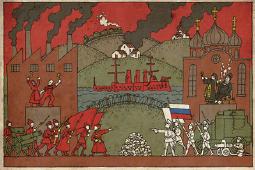
Historical Development
A thread for sharing and discussing information related to the historical development of humanity. Here's my opening contributionhttps://youtu.be/wnqS7G3LmMo?t=1619
timestamp is 27 minutes if the link doesn't work(skipping a lot of introduction).
I like the presenters maxim of
>geography determines social development and social development determines what geography means
Of course i'd replace 'geography' with 'material conditions' but that's a small nitpick in an otherwise great presentation. The other nitpick is the absence of the idea of a mode of production.
We all know how inefficient capitalism is at its uses of the geography/resources it potentially has at its disposal. The profit motive holds back the total use of geography that would be a huge boon on the level of the guns and boat revolution in the 1400s

Rafiq/Ecology Discussion
So some of you may have read the quite popular pdf where Rafiq dunks on eco fetishism, in that thread he references a previous thread where he had spent a lot of time focusing in on eco-fetishism, however this thread has been lost from Revleft. It's available on internet archives but to preserve it I've made this in the style of the previous popular pdf. Hope you guys enjoy!This thread could serve to discuss this work if anyone ever dedicates the time to read it, or we could debate the place of ecology in modern day Marxism. To provoke discussion: does nature have any value outside how it immediately serves human interests?

Is any of Engels' math in Anti-Dühring wrong, or outdated (wrong to a lesser extent)? I showed my STEMlord friend some of these quotes and they didn't understand what they meant:
>It is for example a contradiction that a root of A should be a power of A, and yet A^(1/2) = square root of A.
> It is a contradiction that a negative quantity should be the square of anything, for every negative quantity multiplied by itself gives a positive square. The square root of minus one is therefore not only a contradiction, but even an absurd contradiction, a real absurdity. And yet the square root of minus one is in many cases a necessary result of correct mathematical operations. Furthermore, where would mathematics — lower or higher — be, if it were prohibited from operation with square root of minus one?
>We have already noted that one of the basic principles of higher mathematics is the contradiction that in certain circumstances straight lines and curves may be the same. It also gets up this other contradiction: that lines which intersect each other before our eyes nevertheless, only five or six centimetres from their point of intersection, can be shown to be parallel, that is, that they will never meet even if extended to infinity. And yet, working with these and with even far greater contradictions, it attains results which are not only correct but also quite unattainable for lower mathematics.

/cybersoc/ critical edition
ITT we post links and pdfs to critical or constructive takes on Cockshott and cybersocialism, as well as works or authors who wrote in the fields of cybernetics, systems theory, or operational research in general.>>>/leftypol/438911
>>>/leftypol/438923
>>701

I had the displeasure of listening to the audiobook version of this shit during my commutes the last few months and I must say this is liberalism at it's purest and clearest form.
The book was designer for general audiences so it never goes in deep about what do right or wrong mean, why are things right or wrong or any other analysis about ethics themselves the essays are just a really polite "I'm right and you're wrong" which in the end made the author: Peter Singer, come out like an absolute retarded who only got into philosophy so people will have to listen to his retarded opinions.
What really offends me it's that behind all its stupidity I saw the core of liberalism, absolute ignorance on material conditions and a very strong belief that people are responsible of everything they do. There are essays where Singer struggles to understand why rich people care more about showing their social status than donating to charity and imagines this ideal world where "donating to charity will be the biggest showcase of status" without explaining how would that world come to be and why it doesn't exist already, it's just a really polite rant that rich people are not engaging in noblesse oblige. Like wise Singer; a vegan, protests the mistreatment of animals mean for meat consumption, he cites the testimonial of a farm worker who had a bad experience artificially inseminating a turkey but a no point he ever feels that a human should not work on such conditions in the first place.
After all of that I released that consoomerism is the natural conclusion of liberalism because liberal really believe that other people are not liberal because they have not consoomed the right movies or the right ted talks and that material conditions and life experiences do not matter, Singer just expects that after reading this book you will become a vegan because how right he is about everything.

Theses On Feuerbach
About 200 words total.
In this thread, we break down what the Marx was trying to say.
Link to the text:
https://www.marxists.org/archive/marx/works/1845/theses/index.htm

is war commdified ?
The explanations for the kind of post 2000 warfare are a bit rubbish in my humble opinion. I'm referring to the endless wars that have changing objectives but no real victory conditions. Has capitalism commodified war and did that change it's nature ?Picture not related, it's just a bloody box.

> / t / - torrents and downloads
Mod edit: Too many broken links, new thread here >>4881ok /edu/ some of you may already know what this thread is, share your downloads.things to share:Movies, documentaries and mainly books.Anything related to socialism, anarchy, communism and so on.

What History YTers do you like, which ones do you hate?
There's already a thread about Lindybeige but I find him a bit of an insufferable right wing anticommunist fuck, granted there's plenty of that kind of thing in the YT historian community, but we can try to pick out the diamonds, relatively speaking. I'm kind of afraid to give my recommendations since I've just been going off Youtube recommendations so I'll let you go first.
Cataluña-USSR Relations
I'm reading Orwell's Homage to Cataluña, and the explanation of the USSR influence goes like this:There were two major marxist parties in cataluña:
POUM, that did not align with the USSR, and claimed that the civil war and the revolution were inseparable
PSUC, that aligned with the USSR, and claimed that only after the civil war was won, and bourgeois democracy was restored, that the revolution could go on
He was very skeptical of PSUC's position, and states that the USSR would not allow the revolution to go on because they needed stable allies, and revolutions bring about many things, but not stability.
Smart people of /edu/, can you comment on this position? Maybe provide some more info on this matter? Asking because Orwell is not the most reputable of sources.

How can we reconcile these two seemingly contradictory passages of Marx's? Are they even contradictory?
From Critique of the Gotha Program:
>Within the co-operative society based on common ownership of the means of production, the producers do not exchange their products; just as little does the labor employed on the products appear here as the value of these products, as a material quality possessed by them, since now, in contrast to capitalist society, individual labor no longer exists in an indirect fashion but directly as a component part of total labor. The phrase "proceeds of labor", objectionable also today on account of its ambiguity, thus loses all meaning.
From Capital Vol III:
>Secondly, after the abolition of the capitalist mode of production, but still retaining social production, the determination of value continues to prevail in the sense that the regulation of labour-time and the distribution of social labour among the various production groups, ultimately the book-keeping encompassing all this, become more essential than ever.
Similarly, does Engels contradict Marx's above passage in Capital in his letter to Karl Kautsky on the 20th of September, 1884?
>Present value is that of the production of commodities, but with the suppression of the production of commodities, value 'changes' or rather, value as such remains and merely changes its form. But in fact economic value is a category that appertains to the production of commodities, disappearing with it, just as it did not exist before it. The relation of labour to product prior to and after production of commodities no longer expresses itself in the form of value.

blue eyes and alcoholism
https://rdw.rowan.edu/cgi/viewcontent.cgi?referer=https://www.google.com/&httpsredir=1&article=2571&context=etdhttps://www.health.com/condition/alcoholism/people-with-this-eye-color-may-have-a-greater-risk-of-alcoholism
People with blue eyes are more prone to alcohol addiction, which makes sense if you take into account their greater social inhibition. For many alcohol can be a way to feel free of inhibitions, so while darker eyed people may be more likely to drink to feel less depressed (if they are socially disadvantaged espec), light eyed people are more likely to drink to become more impulsive.
But ofc, blue eyes aren't making someone less impulsive. It's a Neanderthal trait, so anyone with it is more likely to have another set of Neanderthal traits, correlated with being antisocial.

learning new languages - advice needed
I'm starting to learn Portuguese, because I'm tired of being an undereducated burger who relies on English news sources for interaction with the rest of the hemisphere. I would like to eventually learn Spanish and French as well. What can I do to retain the language as best I can, while expanding my knowledge as quickly as I can? Pichopefully unrelatedd.

Slave society and feudalism
I need someone to give me a rundown of how does society develop from the end of tribal society up to birth of feudal one.What are the conditions that lead to creation of slave society and lead to its demise? What contradictions are at play here?My understanding is that first large scale agriculture and with it city states are established. You get social stratification into commoners, nobility and priests. Why does this happen? Do priests and nobles start as mere bureaucrats, organizing production and distribution of food, and over the time solidify their position on top of society?
I am also not quite clear on the reasons why do these city states proceeds to enslave their neighbours. Is because work, particularly farming, sucks and nobody wants to do it, so the citizens of the city state get slaves for it, and thus the main antagonism is between free citizens and slaves? From what I remember from history, the most important class conflicts in Athens were between rising merchant class and nobility, and in Rome between nobility and plebeians.
Ancient city states were oligarchies, but when they expand and become empires, the power seems to concentrate in a hands of single ruler. Why? Also, why does the similar thing happen in feudal kingdoms? In early middle ages, nobility had substantial independence from king, yet during late middle ages came absolutism.
At the end, when Roman empire collapsed, why did the newly settled tribes establish feudal relations between nobility and peasantry, rather that slave society?

Military Doctrine: EBO, SOD
Hello all. I just finished reading a report about the Israel/Lebanon war called "We Were Caught Unprepared" and I was interested in learning more about Effects-Based Operations and Systemic Operational Design which were used by Israel and written or spread by S. Naveh. It sounds like pomo warfare but I want to know if it's legit or not. I'm trying to find more info about it and the document mentioned here in the report:>Of the 170 pages long doctrine document, many experienced officers didn’t understand more than half. Officers responsible for planning EBOs in the Air Force, could not understand the definition of EBO (more precisely in Hebrew Effect-Based Campaigns) or of the definition of the word “Campaign” in the document. The terminology used was too complicated, vain, and could not be understood by the thousands of officers that needed to carry it out. . . . The new terminology and methodology was supposed to be limited to the higher levels of command, and at the level of theater command and definitely at the division level, the old terminology and methodology should have been used.
I've found several papers on EBO but nothing penned by Naveh (I'm attaching them). ITT we can also academically discuss military doctrines. I'm more versed in philosophy than military doctrine but I'm open to learning about campaigns or strategies.

National Maoism/Pol Pot thought
I've been working for a manifesto all these days I've been trying to idealize the Khmer rouge ideology which was hardly based on radical nationalism and Maoism and apparently I call my ideology national Maoism.Therefore I'm searching for the mao Zedong national liberation or KR politics later I would publish my book on amazon kindle.
Still, there is a reel version of my book but sadly I wont reveal it only few had the chance

University communists general
This is a thread for communists who are (or are planning to) study at [b]unnamed[/b] universities the world over.The thread is to serve as a mutual intellectual support system and meta-discussion for communist students to
· share resources for picking and learning your object of study
· discuss strategies for studies
· weekly rhythms and scheduling outside of the classroom
· organizing the student-body and/or spreading artistic agitation
· all while ultimately staying safe and completing your studies
✊🚩🏴

9 out of 10 leftists have never read Capital
Just gauging interest in a loosely organized Capital Reading Group. Not sure if a reading group has been done on here but we could agree to read a few chapters a week and then create a thread to discuss it or alternatively make a group signal/matrix for it. If there is no interest then please Sage or Ignore.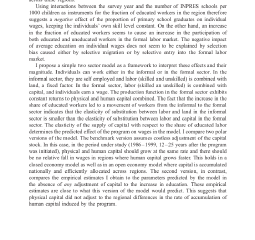
How to learn economics?
I consider myself fairly intelligent when it comes to reading papers, but I'm really struggling with this one.This paper is about an education program in Indonesia and the long term effects on the job market. I'm used to studying more sociological papers, but this also includes lots of statistical analysis and words like function and regression that I don't understand.
Also, I've read this passage 10 times and don't understand it
>The production function in the formal sector exhibits constant returns to physical and human capital combined. The fact that the increase in the share of educated workers led to a movement of workers from the informal to the formal sector indicates that the elasticity of substitution between labor and land in the informal sector is smaller than the elasticity of substitution between labor and capital in the formal sector.
Can anyone help me? If I want to understand this stuff, what kind of courses should I be looking at?

>The free people’s state is transformed into the free state. Grammatically speaking, a free state is one in which the state is free vis-à-vis its citizens, a state, that is, with a despotic government. All the palaver about the state ought to be dropped, especially after the Commune, which had ceased to be a state in the true sense of the term. The people’s state has been flung in our teeth ad nauseam by the anarchists, although Marx’s anti-Proudhon piece and after it the Communist Manifesto declare outright that, with the introduction of the socialist order of society, the state will dissolve of itself and disappear. Now, since the state is merely a transitional institution of which use is made in the struggle, in the revolution, to keep down one’s enemies by force, it is utter nonsense to speak of a free people’s state; so long as the proletariat still makes use of the state, it makes use of it, not for the purpose of freedom, but of keeping down its enemies and, as soon as there can be any question of freedom, the state as such ceases to exist. We would therefore suggest that Gemeinwesen ["community"] be universally substituted for state; it is a good old German word that can very well do service for the French “Commune.”
https://www.marxists.org/archive/marx/works/1875/letters/75_03_18.htm
What did Engels mean by this?
>pic unrelated
it's what comes up when you search for images of Engels

Calculus Review General
This is a thread to review/learn calculus.We will all be reading through James Stewart's "Calculus" 4e edition.
see: http://libgen.rs/book/index.php?md5=67AF6FA4D6DAB692F81A09B6A2EBCC7B
This is inspired by my need to review undergraduate mathematics due to work/school purposes. I'm a bit rusty and I've forgotten a ton of math.
We will start by doing problems from his algebra review pdf which is prep for the calc problems.

What if I wanted to read more or less "contemporary" philosophers like Sartre, Beauvoir, Adorno, Deleuze, Zizek, Badiou, etc.. but don't have the time and, dare I say, sufficient interest to go through Kant, Plato, Aristotle, and all the other classical authors of philosophy? How much do I have to lose? I'm willing to spend a couple of months reading Plato, but I think I'm only willing to go through secondary sources for Aristotle. Same goes for the philosophers that predated the "contemporary" ones mentioned above. I'd be willing to read a history and primer on German idealism and maybe even read primary enlightenment texts if I have to.
So how much do I have to lose? People who are good at philosophy please answer.

Can you help me debunk this wehraboo historian
This guy Is called nigel askey, and is apparently a legitimate historian. He published a paper debunking TIK's claim that the K/D ratio of the soviets during WW was 1/1.6, instead claiming that the soviets lost over 4 more times as many combatants as the Germansduring WW2. Here is his paper. I'm not a qualified historian and I dont have access to acrhives or time to research, so I can't debunk him.http://www.operationbarbarossa.net/wp-content/uploads/2017/10/Essay-alt-view-TIK-presentation.pdf
I checked out his website and alsthough he does seem to be knowledgeable, he makes certain ridiculous claims that the "Vicors write history" in WW2, and the allies covered up how technologically and tactically inferior they were to the germans.

Going for physical books
I can't concentrate when reading on a computer screen, is it a bad idea or nah? Ideally I'm only going to buy cheap used stuff I find.Another question, should I try to get the absolute best translation and publisher or is does it not matter what edition I get as long as I freaking read something?
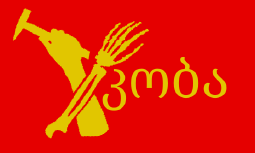
Community Organizing 101
https://www.youtube.com/watch?v=apGViv909eo>Let's talk about a hard truth about voting and community networks….

Requesting Books on Leadership
Anyone know of good books on leadership as an academic field? Analyses of different styles and structures of leadership are welcome as well. None of that self-help, entrepreneurial, hero worship, or landfill literature BS that so often dominates pop culture. Thanks friends.
The truth about Stalin
I want to learn more about the dogmatism that surrounds Stalin in socialism by looking at the actual historical evidence. I know there are books by Grover Furr that discuss this subject. but I want to additionally know what are some books with direct counter-arguments to Grover Furr's claims, and which of Grover Furr's books I should read first.any suggestions?
pic unrelated.

Free Trade vs. Protectionism
<The question of Free Trade or Protection moves entirely within the bounds of the present system of capitalist production, and has, therefore, no direct interest for us socialists who want to do away with that system.>Indirectly, however, it interests us inasmuch as we must desire as the present system of production to develop and expand as freely and as quickly as possible: because along with it will develop also those economic phenomena which are its necessary consequences, and which must destroy the whole system: misery of the great mass of the people, in consequence of overproduction. This overproduction engendering either periodical gluts and revulsions, accompanied by panic, or else a chronic stagnation of trade; division of society into a small class of large capitalist, and a large one of practically hereditary wage-slaves, proletarians, who, while their numbers increase constantly, are at the same time constantly being superseded by new labor-saving machinery; in short, society brought to a deadlock, out of which there is no escaping but by a complete remodeling of the economic structure which forms it basis.
>From this point of view, 40 years ago Marx pronounced, in principle, in favor of Free Trade as the more progressive plan, and therefore the plan which would soonest bring capitalist society to that deadlock. But if Marx declared in favor of Free Trade on that ground, is that not a reason for every supporter of the present order of society to declare against Free Trade? If Free Trade is stated to be revolutionary, must not all good citizens vote for Protection as a conservative plan?
>If a country nowadays accepts Free Trade, it will certainly not do so to please the socialists. It will do so because Free trade has become a necessity for the industrial capitalists. But if it should reject Free Trade and stick to Protection, in order to cheat the socialists out of the expected social catastrophe, that will not hurt the prospects of socialism in the least. Protection is a plan for artificially manufacturing manufacturers, and therefore also a plan for artificially manufacturing wage laborers. You cannot breed the one without breeding the other.
>The wage laborer everywhere follows in the footsteps of the manufacturer; he is like the "gloomy care" of Horace, that sits behind the rider, and that he cannot shake off wherever he go. You cannot escape fate; in other words, you cannot escape the necessary consequences of your own actions. A system of production based upon the exploitation of wage labor, in which wealth increases in proportion to the number of laborers employed and exploited, such a system is bound to increase the class of wage laborers, that is to say, the class which is fated one day to destroy the system itself. In the meantime, there is no help for it: you must go on developing the capitalist system, you must accelerate the production, accumulation, and centralization of capitalist wealth, and, along with it, the production of a revolutionary class of laborers. Whether you try the Protectionist or the Free Trade will make no difference in the end, and hardly any in the length of the respite left to you until the day when that end will come. For long before that day will protection have become an unbearable shackle to any country aspiring, with a chance of success, to hold its own in the world market.
- Engels, writing in 1888
https://www.marxists.org/archive/marx/works/1888/free-trade/index.htm
The world has changed, free trade has enabled countries like China to build up its productive forces. However, the "necessary consequences" do not seem to have materialised fully. Along with free trade, we have gotten increased inter-dependence, exchange of information, global policing, surveillance, etc. How can the proletariat of one country stand up against its national bourgeoisie if there are countries willing to ignore sovereignty and help the counter-revolutionaries? These things seemed more possible when each and every person was not tracked and listened to through a cell phone or laptop.
Engels says that in Marx's time the free trade position was the revolutionary one? Does that still hold true today?

Historical Documentary General
This will be a thread for posting and sharing Documentaries about history as a whole.I was sitting around watching Step back and I realized it has been a while since I have seen any of those old BBC like documentaries about historical figures.
Doesn't have to be older though. If you have any Youtube links or torrents to look up post them here. Thanks anons.

Is "The Poverty of Philosophy" full of slander ahd lies?
https://anarchism.pageabode.com/anarcho/review-poverty-philosophy-karl-marxThis article claims that Marx's "Poverty of Philosophy" is just a slanderous book that has nothing to do with Proudhon's real theories.
Marx doesn't properly quote Proudhon or openly strawmans him. His claims about Proudhon being bad economist in the begining of the book sound laughable since Proudhon was respected economist in his time.
>Comparing Marx’s “reply” to what Proudhon actually wrote, it is hard to take the former seriously. Once the various distortions and inventions are corrected, little remains. Proudhon was right to suggest Marx’s work was “a tissue of crudities, slanders, falsifications, and plagiarism.” (Correspondance [Paris: Lacroix, 1875] II: 267-8) Worse, Marx himself twenty years later embraces in Capital most of the positions he attacks Proudhon for holding in 1847.
>The dishonesty of The Poverty of Philosophy has distorted our view of Proudhon’s ideas and the time is long overdue for a revaluation of Proudhon and his contributions to anarchism and the wider socialist movement. This does not mean that Marx does not, occasionally, presents a valid point – most obviously, Proudhon’s opposition to strikes was wrong as subsequent anarchists recognised – it is just that these are frustratingly few in the midst of so much distortion. So, yes, Proudhon’s mutualism – a form of market socialism based on worker-run co-operatives – does need to be critiqued but Marx’s book is simply not that work.
are there any counter arguments to this?

Translation Project
I need suggestions of things to translate into English.>ideally fairly short (not a book)
>classic text or unsung new author
>something awesome.
this is along term project I am starting with the New Multitude magazine and we already have one translation completed (Blood and Earth (1958) by Bamaw Tin Aung) and are looking for more.
any suggestions?

Libertarian marxist?
I'm not sure sure where I sit on the left exactly because i am very sympathetic to alot of ansyn and mutualist anarchist models and also strongly center my belifes around the labor theory of value but I don't belive in the dissolution of the state but instead the state only existing as a democratic and transparent beuracratic entity that can mediate between potential disputes between communes and plan for projects that would involve multiple communes coperationWould it be apt to refer to this as libertarian Marxism?

Did Marx support a strongly centralized state or no?
I am open to non-marxist points of view. Evidence for:>Whilst it forces on more and more of the transformation of the vast means of production, already socialized, into State property, it shows itself the way to accomplishing this revolution. The proletariat seizes political power and turns the means of production into State property.
https://www.marxists.org/archive/marx/works/1872/04/nationalisation-land.htm
>The nationalisation of land will work a complete change in the relations between labour and capital, and finally, do away with the capitalist form of production, whether industrial or rural. Then class distinctions and privileges will disappear together with the economical basis upon which they rest. To live on other people's labour will become a thing of the past. There will be no longer any government or state power, distinct from society itself! Agriculture, mining, manufacture, in one word, all branches of production, will gradually be organised in the most adequate manner. National centralisation of the means of production will become the national basis of a society composed of associations of free and equal producers, carrying on the social business on a common and rational plan. Such is the humanitarian goal to which the great economic movement of the 19th century is tending.
https://www.marxists.org/archive/marx/works/1872/10/authority.htm
>If man, by dint of his knowledge and inventive genius, has subdued the forces of nature, the latter avenge themselves upon him by subjecting him, in so far as he employs them, to a veritable despotism independent of all social organisation. Wanting to abolish authority in large-scale industry is tantamount to wanting to abolish industry itself, to destroy the power loom in order to return to the spinning wheel.
Let us take another example — the railway. Here too the co-operation of an infinite number of individuals is absolutely necessary, and this co-operation must be practised during precisely fixed hours so that no accidents may happen. Here, too, the first condition of the job is a dominant will that settles all subordinate questions, whether this will is represented by a single delegate or a committee charged with the execution of the resolutions of the majority of persona interested. In either case there is a very pronounced authority. Moreover, what would happen to the first train dispatched if the authority of the railway employees over the Hon. passengers were abolished?
But the necessity of authority, and of imperious authority at that, will nowhere be found more evident than on board a ship on the high seas. There, in time of danger, the lives of all depend on the instantaneous and absolute obedience of all to the will of one.
When I submitted arguments like these to the most rabid anti-authoritarians, the only answer they were able to give me was the following: Yes, that's true, but there it is not the case of authority which we confer on our delegates, but of a commission entrusted! These gentlemen think that when they have changed the names of things they have changed the things themselves. This is how these profound thinkers mock at the whole world.
We have thus seen that, on the one hand, a certain authority, no matter how delegated, and, on the other hand, a certain subordination, are things which, independently of all social organisation, are imposed upon us together with the material conditions under which we produce and make products circulate.
https://www.marxists.org/archive/marx/works/1847/communist-league/1850-ad1.htm
>But no more than local and provincial self-government is in contradiction to political, national centralisation, is it necessarily bound up with that narrow-minded cantonal or communal self-seeking which strikes us as so repulsive in Switzerland, and which all the South German federal republicans wanted to make the rule in Germany in 1849. – Note by Engels to the 1885 edition.]
Evidence against:
>With all the great towns organized into Communes after the model of Paris, no government could repress the movement by the surprise of sudden reaction. Even by this preparatory step the time of incubation, the guarantee of the movement, came. All France [would be] organized into self-working and self-governing Communes, the standing army replaced by the popular militias, the army of State parasites removed, the clerical hierarchy displaced by the schoolmaster, the State judge transformed into Communal organs, the suffrage for the national representation not a matter of sleight of hand for an all-powerful government but the deliberate expression of organized Communes, the State functions reduced to a few functions for general national purposes.
Such is the Commune – the political form of the social emancipation, of the liberation of labour from the usurpations (slaveholding) of the monopolists of the means of labour, created by the labourers themselves or forming the gift of nature. As the State machinery and parliamentarism are not the real life of the ruling classes, but only the organized general organs of their dominion, the political guarantees and forms and expressions of the old order of things, so the Commune is not the social movement of the working class and therefore of a general regeneration of mankind, but the organized means of action. The Commune does not [do] away with the class struggles, through which the working classes strive to [read for] the abolition of all classes and, therefore, of all classes [class rule] (because it does not represent a peculiar interest, it represents the liberation of “labour,” that is the fundamental and natural condition of individual and social life which only by usurpation, fraud, and artificial contrivances can be shifted from the few upon the many), but it affords the rational medium in which that class struggle can run through its different phases in the most rational and humane way. It could start violent reactions and as violent revolutions. It begins the emancipation of labour – its great goal – by doing away with the unproductive and mischievous work of the State parasites, by cutting away the springs which sacrifice an immense portion of the national produce to the feeding of the State monster on the one side, by doing, on the other, the real work of administration, local and national, for working men’s wages. It begins therefore with an immense saving, with economical reform as well as political transformation.
The Communal organization once firmly established on a national scale, the catastrophes it might still have to undergo, would be sporadic slaveholders’ insurrections, which, while for a moment interrupting the work of peaceful progress, would only accelerate the movement, by putting the sword into the hands of the Social Revolution.
Source unknown
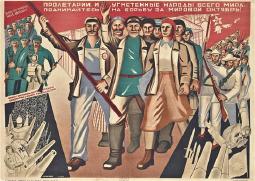
Why is the Proletariat the revolutionary class?
I haven't read much but I'm confused as to why Marx and others conceived of the proletariat as the class that would overthrow capitalism. If we look at history through a materialist lense it seems to me that it's only been a third propertied class overthrows the current system of production, not the people without property. For example, it wasn't slaves that overthrew slavery, it was landlords. It wasn't serfs that overthrew feudalism, it was the bourgeoisie. Every revolution calling itself socialist that actually took state power was led by petit-bourgeois intellectuals like Lenin, Ho Chi Minh, Mao, and Fidel Castro and manned mostly not by workers, but by peasants in a semi-colonial semi-feudal relationship to the means of production. Most proletarian movements in advanced capitalist societies have been reformist and class collaborationist. How, after all of this evidence, can we say that the proletariat is the revolutionary class? How can you say the workers have nothing to lose but their chains when they need capitalism to keep going so they can have running water, electricity, and the spectacle to keep them comfortable?
Books/Sources on America's Coal Wars?
I'm a history major in Burgerstan, I'm hoping to really focus in on labor history and eventually get some kind of law degree so I can help Unions or work for OSHA or some shit. I thought it might be a good idea to start reading up on one of the more violent episodes of American Capitalism. Can anybody recommend some good accounts or Historians that cover the Coalfield Wars?
socialism and institutional pluralism
It seems like most socialists are either Marxists who support comprehensive state planning, or anarchists who support either cooperative firms or informal local economies.Isn't this a false dichotomy, though? Different institutions have different strengths and weaknesses. Non-centralized institutions are necessary to deal with major collective action problems, like for instance climate change, but can come with a small number of failure points. One could imagine a world where SOEs produce public goods and homogenous commodities at scale, while smaller cooperatives form to produce more differentiated or experimental products.
I suppose a difficulty this introduces is that unlike everyone both owning and working for the state, or everyone both owning and working for their cooperative, this produces a seeming worker-owner split, with everyone owning the state but only some working for it. But there might presumably be a way to fix this with the way the state funds new cooperatives and collects back surplus from successful ones, which would seem to be necessary to avoid independent capital accumulation in an economy of just cooperatives anyway; and there may be aspects of the labor/ownership split that are physically inevitable per Critique of the Gotha Program (it cannot ever be the case that the only people who benefit from labor are the laborers, etc.)
Probably people have already done the math on this, or shown ways you could do it or why you couldn't, but I'm an ignoramus, so I'm posting this here.

I've heard the May '68 failure characterized as being due to a conflict between the PCF and the students themselves. I haven't finished reading PDF related (below) but so far it seems to support this, being from the perspective of the students and, as you would expect, laying the blame on the PCF as well as heaping them with epithets (comparing them to liberals, for example). So my questions here are:
<1. Is this book known to anyone? If not, does it look like a decent primary source from the students' point of view?
<2. Does anyone have anything more sympathetic to the PCF that could balance it out? Or even something more neutral to both sides?
Thx anons

Essay writing / academic skills
Hey /e/Im a brainlet prole that recently got a scholarships to university, and Im wondering if there are any resources that you could recommend to improve general academic skills with an emphasis on essay writing. I've done a general scan for books and courses on libgen and TPB. But I wanted to get some advise with a left perspective. When I say brainlet I mean dyslexic and when I say prole I mean any unskilled job I can land (bar work, kitchen work, construction, etc.) My degree is in healthcare and administration.
The scientific value of materialism
Hello comrades. I have doubts about materialism since the philosophical part of Marxism isn't my strength, but I want to be able to understand it better since materialism is the foundation of marxist theory and the communist movement.I've had arguments in the past with people who claim that modern science doesn't prove materialism or that materialism cannot explain things like the origin of the universe or quantum mechanics. Well, where do I begin with this? Is materialism the truth? The most basic part of marxist philosophy is the assertion that matter is objectively real, right? How do I prove this then? Maybe one of you STEMlords around here can help me out with this. Any resources on this is appreciated.

Is it possible that magic and myth are true?
Inspired by my reading of the book, Ishmael, by Daniel QuinnHow do we know myths, stories, magic, etc. are not real? Assuming what we know scientifically is true, how does this negate myth, legend, etc? Why are dinosaurs not simultaneously animals and also monsters when they fit what we would have called monsters? Why are overriding social systems not tantamount to a spirit or God when they control our actions and shape our life histories even if they don't act consciously? Are they not what we'd call an egregor, i.e., a presence brought into existence by the actions and beliefs of a large number of people? Is our Sun not a God when it is responsible for all life on Earth? Is the biosphere not some sort of Earth spirit when it encompasses all living things yet influences each individually and can be destroyed through harming the Natural (non-human) World. Are spirits not the electrical currents moving through your brain? Do we not tell history as a story?
In the beginning there was nothing but the One, then the One expanded into the Everything, as the Everything continued to expand soon the beating hearts of the Everything, the Stars began to form from the energy of the Beginning, the stars coalesced into huge interstellar communities, galaxies; in the nuclear core of the stars more building elements were created, and from the stars came the planets; in the deep seas of one planet around one star life formed out of the energy of the planet's iron core, over the course of billions of years life arose in complexity in a way matching the Everything until finally from Life emerged the Someone, a complex arrangement of the Everything capable of consciously perceiving itself.
Why isn't our understanding of the Universe, even being scientifically true, a myth? Myths were once truths, after all.

Scientific Socialism and Dialectics
Alright so I've had a few interactions with people on /leftypol/ who seem to think that Dialectics means rejecting the Aristotelian law of non-contradiction. As far as I can tell this has no real basis in the work of Marx or Engels and is a good to not be taken seriously by anyone who understands logic or philosophy or mathematics. I was really confused about where this came from for a while. I have read Mao's "On Contradiction" many times and I suppose that text could be read that way, but I don't think that is what Mao meant by contradiction or "the unity of opposites". Last night though I read Leon Trotsky's "The ABC of Materialist Dialectics" and I think I've found my answer. In it, Trotsky straight up makes a case for why A=/=A, and does make a somewhat compelling argument until you examine it critically.This piece is well written like most of Trotsky's work, but his argument is full of non-sequitors and general misreadings of Marx and Engels. I want to make this thread to do some comparing and contrasting between four texts in particular, but we can bring in other lit if people want. Those four texts are…
Anti-Duhring by Engels:
https://www.marxists.org/archive/marx/works/1877/anti-duhring/index.htm
The ABC of Materialst Dialectics:
https://www.marxists.org/archive/trotsky/1939/12/abc.htm
Dialectical and Historical Materialism:
https://www.marxists.org/reference/archive/stalin/works/1938/09.htm
On Contradiction by Mao Zedong:
https://www.marxists.org/reference/archive/mao/selected-works/volume-1/mswv1_17.htm
The first thing I want to note is in paragraph 12 of the general introduction to Anti-Duhring:
>To the metaphysician, things and their mental reflexes, ideas, are isolated, are to be considered one after the other and apart from each other, are objects of investigation fixed, rigid, given once for all. He thinks in absolutely irreconcilable antitheses. "His communication is 'yea, yea; nay, nay'; for whatsoever is more than these cometh of evil." [Matthew 5:37. — Ed.] For him a thing either exists or does not exist; a thing cannot at the same time be itself and something else. Positive and negative absolutely exclude one another, cause and effect stand in a rigid antithesis one to the other.
Now, on first read this might appear to be a denunciation of Aristotelian non-contradiction, but I am pretty sure it isn't. It isn't a mere assertion of temporarily either because he specifically says "at the same time". I'm pretty sure what he means here is that a thing can be both itself in terms of it's internal relations, and something else in terms of it's external relations. This is supported by the context of this quote, in which Engels is talking about the metaphysical or even naturalistic approach of examining systems in isolation and not in their particular contexts.
Thoughts?

Distinguishing features between real ML and ML right-deviationism(^2)?
If ML anti-revisionism came to encompass a defense of orthodox Marxism, Bolshevism/Leninism and Stalinism, then:1. what features did the ML revisionism of Khrushchev and his USSR followers entail that broke with this
2. which policies differentiated Dengist revisionism from the USSR revisionism, enough for them to not be able to get along by Brezhnev-Deng times?
3. Does Bukharin'ism' play any particular role in how these right-wing deviations differed?

Cybersocialism and Marx & Lenin in the 21st Century
This thread is to discuss how we plan to adapt, and build upon current Marxist thought into the century. We must cut ties with larp of the 20th century, we need no more trot parties or consumer ideologies. This is about Marxism as a science.A huge part of this is of course cybersocialism so I'd like to use this thread to discuss ideas relating to that too. If you are new to this, Cockshott's Towards A New Socialism is a must. If you want to bring round your soccdem friends, recommend People's Republic of Walmart as a taste.

The Agricultural Revolution vs the Urban Revolution vs Industrial Revolution
Explain, in your opinion, from a Marxist standpoint, which held the more important change to humanity's social organization, technology, and relationship to Nature; was it the Agricultural Revolution with the start of animal husbandry, settlements, and war? Was it the Urban Revolution with the start of social classes, states, philosophical inquiry, and writing? Or was it the Industrial Revolution with the start of modern warfare, modern agricultural, globalization, modern science, and the population boom?
The Great Soviet Encyclopedia
https://en.wikipedia.org/wiki/Great_Soviet_EncyclopediaThe third (last) edition of the Great Soviet Encyclopedia was translated into English for a western publisher almost concurrently with the Russian encyclopedia's publication. Given its obvious significance, it's surprising that not a single volume has circulated online like many other books.

studying mysticism/esotericism vs studying cosmology,physics and maths
I'm a celibate man(thus have high brain power)and i want to find the ultimate truth to life.I have limited time and two options:
>stuyding esotericism,magick,mystic treatises and meditation techniques,the vedas,medieval books etc
OR
>cosmology,neurology,biology,history of life on earth,maths,etc
Which should I devote my time to?

Ethiopian elephants
Did the ancient/medieval Ethiopians domesticate the African elephant? In many historical records, the Abyssinians/Aksumites are mentioned to use elephants for military purposes, but were these African elephants or Asian elephants? In modern-day Ethiopia, or in fact anywhere for that matter, there is no sign of domestication of the African elephant. However, African elephants have been extensively used in ancient times for military purposes, for example by the Carthaginians.
Reforms possible post-capitalist society
This thread is for large-scale improvements or even small tweaks in society that are impossible to implement under capitalism. Inspiration for this thread came after reading thishttps://www.vice.com/en_us/article/xgqkyw/copper-destroys-viruses-and-bacteria-why-isnt-it-everywhere
>Today, we have insight into why a person handling copper day in and day out would have protection from a bacterial threat: Copper is antimicrobial. It kills bacteria and viruses, sometimes within minutes. In the 19th century, exposure to copper would have been an early version of constantly sanitizing one's hands.
>A study from 2015 found that a different coronavirus, human coronavirus 229E, which causes respiratory tract infections, could still infect a human lung cell after five days of being on materials like teflon, ceramic, glass, silicone rubber, and stainless steel. But on copper alloys, the coronavirus was “rapidly inactivated.”
>So given how well it could work, for hospital infections and for health more generally, why isn’t copper everywhere? Why isn’t every door knob, every subway rail, every ICU room, made of copper? Why can we easily buy stainless steel water bottles, but not copper? Where are the copper iPhone cases?
>There might also be a perception that copper is too expensive, Schmidt said, despite the fact that the numbers indicate it would ultimately save money. One of Keevil and Schmidt's studies from 2015 did the math: The cost of treating an HAI ranges from $28,400 to $33,800 per patient. Installing copper on 10 percent of surfaces cost $52,000 and prevented 14 infections over the course of the 338-day study. If you take the lower end of the HAI treatment cost ($28,400), then those 14 prevented infections saved a total of $397,600, or $1,176 a day.
So while the material and reason to use copper for most things are there. The kind of short-term market logic that makes it impossible to do anything about climate change also prevents this move from being made.

date: 9-4kya
blue = european
orange = levant MENA
green = iran MENA
9kya, levants colonize europe and mix with european foragers. The mixing ultimately ends up being on somewhat even terms.
5kya, a mixed race group (half euro half iran) colonizes europe very hard, killing off both euro/levant males and essentially raping their women. These "aryans" introduce the indoeuropean languages into europe.
Every european today has these three ancestries in their genome. Some europeans, like italians and greeks, are more Middle Eastern than European.
The average Brit is 60% european, 40% MENA (30% levant and 10% iran)
In addition, Finns and Russians have about 10% Asian ancestry from Uralics.

Aesthetics
Hume established criteria for good taste. However, criteria for good taste says nothing about criteria for good art. So what then is the criteria for good art, the seeming elephant in the room left unaddressed in the realm of aesthetics? How can you call something good art if you cannot even define what is good art?
Can someone get me this? I'm getting copyright blocked and cant find it anywhere.
Bellu, E. "The Dialectical Significance of Chemistry in the Works of Fr. Engels." Revue roumaine des sciences sociales: serie de philosophie et logique 17 (1973): 163-169.
Bellu, E. The Dialectical Significance of Chemistry in the Work of Friedrich Engels. Romanian Journal of Social Sciences Philosophy and Logic Series, Volume 17, 1973, 163-169.
https://catalog.hathitrust.org/Record/000494736

Any Gayfags here? Why are Gays so liberal compared to LBTQ+?
It seems like the Democrats have done a great job of pinkwashing their party, the amount of Gays I see worshipping any Dem candidate–including Biden, who supported both DADT and DOMA, is entirely annoying.Why are Lesbians, Transbians, Trans*, and Bisexuals so much more radical overall than gay men? What's the issue?
I see so many LBTQ+ people in socialist groups like FRSO or anarchist collectives but my fellow gays would rather hole up in bars or form Stonewall caucuses to support homophobic democrats.
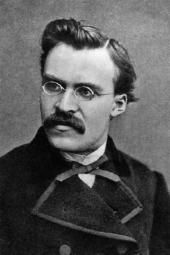
What's the deal with Nietzsche and his rabid followers?
Is he like an old Jordan Peterson? A Rorschach test that says "water is wet"?Tolstoy wrote that Nietzsche wrote nothing insightful, that had he been alive earlier no one would have paid attention to his writings, that he and his prominence is a sign of intellectual decay. Trotsky wrote that the reason why Nietzsche's followers can be so radically different from each other is because they take what they want from Nietzsche and ignore whatever else is inconvenient for them. When someone points out the terrible things Nietzsche wrote, the response is either a) you're misinterpreting him! or b) his personal views are not reflective of his philosophy! or even c) you can't critique the genius of Nietzsche because he has rejected reason!
Does this strike anyone else as eerily similar to Jordan Peterson and his rabid followers?

Knowledge/Skill Exchange
Here we post our fields of expertise, in hopes to share the knowledge with our fellow comrades. Ask any questions to comrades in this thread regarding their skills, and post your own. Maybe we can create a chat eventually to teach things at a more in depth level.Me: Native English speaker, very good at math, okay at similar sciences, and computer science, can help with music regarding drums/guitar/songwriting etc.
I'm particularly interested in learning Chinese (Mandarin), I've just started learning some basics, if anyone has any advice or resources for learning that would be great.

General Education for Brainlets
A lifetime of undiagnosed learning disorders, educational neglect and unproductive escapism has reduced my grey matter into a vestigial organ. I essentially missed out on the entirety of highschool but was able to work with what I had and managed to get a GED plus a tiny smattering of community college. But I started to hit the brainlet wall again and I realized how spotty and full of holes my whole foundation is. I was too ashamed at the time to ask for help and I no longer have access to professional educators so I might as well ask an anonymous imageboard.Do y'all have any good resources or books for someone looking to restart their education from basics? Assume that I don't know anything aside from basic literacy and numbers. Maybe not even that.

How to get woke cheat sheet
/Leftypol/ didn't bite, let's see if /edu/ acctually might read something.>Read capital and complimentary theory.
>No! Really, READ capital and complimentary theory.
>No, not like that!
>Ok basically read this quote down below by fucking Karl Marx.
>And at least read the text on point 1 down below.
>Why?
> To understand why your current party isn't even being shut down or disturbed by the Porky Police.
>You are in your current state, totally harmless.
>Let's not keep it that way.
"It is all the more clear what we have to accomplish at present: I am referring to ruthless criticism of all that exists, ruthless both in the sense of not being afraid of the results it arrives at and in the sense of being just as little afraid of conflict with the powers that be. Therefore I am not in favour of raising any dogmatic banner." - Karl Marx
1:
https://www.krisis.org/1999/manifesto-against-labour/
2:
https://libcom.org/files/Moishe%20Postone%20-%20Time,%20Labor,%20and%20Social%20Domination.pdf
Feel free to read these pages before going for the full dive in this one:
3-18,24-32,39-41,49,58,72-83,123-125,144-158,179-180,193-204,211-217,263-265,277-279,358-368,373-378,389-390,394-399
(btw yes I know this file is hosted on libcom but who gives a shit)
3:https://rtheory.files.wordpress.com/2011/06/disassembling-capital-n-pepperell.pdf
Feel free to read these pages before going for the full dive in this one:: 3-18,41-42,85-86,99-101,156-157-176-181,189,248-254,257-263,266-268
Bonus:
Idk translate this shit if u give a fuck or read Bork, I've not read it I just stumbled across it, It's written as a masters in intellectual history so it might suck… But more theory is almost always good, otherwise we'll never get out of this shit.
https://gupea.ub.gu.se/bitstream/2077/53697/1/gupea_2077_53697_1.pdf
Also: Rest of the thread is now dedicated to talking about the literature as well as recommending other stuff which is actually good and not full of quasi-religious essentialism et.c

Does math describe the world or is math the world?
This question has been puzzling me lately. In my view because the most "raw" understanding we have of the world is our experience, which isn't mathematical (color, feelings, etc) which means that the world cannot be purely mathematical. I think then what we have is a "materialistic" world which can be described as mathematics. The maths isn't what is really happening, but it helps us in manipulation. Kind of like moving an desktop icon to the bin on your screen is just a metaphor for execution of code inside the computer. It would be a mistake to assume how the computer really works is icons on some screen, even if it helps us in manipulation.Furthermore what makes me believe this more, is that sometimes scientific discoveries can have multiple interpretations. Quantum mechanics has like 4,and all of them are valid logically. Which one you chose depends more on your preference then anything. If that wasn't the case, you wouldn't have scientist debating the exact same theory. You may say one is more clean or beautiful or intuitive, but previous scientific discoveries did not care about that. Some weren't symmetrical as people wanted or intuitive, some were. So it's just speculation.
Where this bothers me though is simulations. Assume we model a person inside a computer by describing every particle in him through code. Would he "think"? Obviously I expect him to behave a certain way like a human do, but so would a simulated model of a tree, even if it wasn't really a tree. It does not mean the simulated person thinks. He just fools us, but has no understanding of the world himself.
What even gets me more confused is the fact that thoughts, as in consciousness and direct experience play a role in our behaviour. We all know the famous experiment of brain activity appearing milliseconds before a person is conscious of moving his finger, but this wasn't the only thing found. Consciousness can also cancel that movement as it desires. actually in practice the complexity, free will or how you want to call what makes humans unique is a reason why it is impossible with current understanding to predict human behaviour. Game theory only works if you assume people as psychopaths and shallow husk only interested in playing the game the game theorist made up. This makes the idea of unconscious mathematical digital human being the same as a regular human bit wonky, yet because I can't point to from where consciousness emerges, my position is wonky too.
Amy thoughts?

Basic Graphic Design ?
I want to start making infographics for my college to use them as a way to spread Marxism and leftist theory- Does anyone here studies Graphic Design or something Art-related?
- Which principles or rules should I follow when making these contents?
- Can you provide some links with examples of leftist media and design?, I'm aware of some artistic currents and their names (Like Soviet Constructivism), but I would like to know <how> to "use" them

Liberal Arts Major Contrition Thread
The regret and remorse lasts a lifetime. Graduated during last recession, no steady work for over a decade. I am the stereotype be they rightoid or STEMlord points to. It is correct, it is valid. Only debt remains. Do not sin like I have sinned. Only death will cleanse me of suffering. Just use the library. Only STEM will bring us a socialist future.
Ayy Lmao
>They found that phosphine on Venus is a minor gas, existing at a concentration of about 20 out of every billion molecules in the atmosphere.>“We really went through all possible pathways that could produce phosphine on a rocky planet,” Dr. Petkowski said.
>“If this is not life, then our understanding of rocky planets is severely lacking.”
http://www.sci-news.com/astronomy/phosphine-atmosphere-venus-08847.html

Definition of Fascism
There is a lot of confusion on what fascism is and what it means.So I think It may be useful to clear things out by making a little general so it can be properly defined and pointed out.
I will start by laying some popular questions about it:
-What is Fascism? (or who best defined it)
-What is function of Fascism?
-Is Trump fascist? (if not, why and where he stands instead)
-What (if it exist) is Post-modern Fascism (/leftypol/s sugarboy Prolekult talked about it)
-Are there Fascist still around/what would take them for to rise up again?
-Does QAnon have any Fascist pararels?
-Some post-1945 historical examples of Fascism.
-Economics of Fascism.
-Flavours of Fascism (based on different material conditions, nations etc.).
-Fascist relations to Imperialism, can Fascist country be Imperialist?

Hi /edu/, I'm looking a list of famines and droughts in Russia before 1917 with death estimates but after an hour of searching on the Googles I've found nothing. I'm also having trouble finding a list of population size numbers for the 19th century. Could somebody please point me in the right direction, or otherwise explain why this information is so hard to find (am I just a brainlet)? I'd prefer a source that is as apolitical/free from ideology as possible.

the dark islam within lovecraftian horror.
His works contain explicit references to ancient islamic texts, some say cosmic horror is a pessimistic inversion of sufist cosmology. Some of his stories, like the nameless city, is a direct reference to a story contained within the quran. Here are some direct quotes:>At one time I formed a juvenile collection of Oriental pottery and objets d’art, announcing myself as a devout Mohammedan and assuming the pseudonym of “Abdul Alhazred” – which you will recognise as the author of that mythical Necronomicon which I drag into various of my tales […]. (letter to Edwin Baird, February 3, 1924)
>The absurdity of the myth I was called upon to accept and the sombre greyness of the whole faith compared with the Eastern magnificence of Mahometanism, made me de-finitely agnostic […].10
You can read more here:
>https://www.researchgate.net/publication/272537419_The_Darker_Islam_within_the_American_Gothic_Sufi_Motifs_in_the_Stories_of_HP_Lovecraft

>>2866
Human beings have an innate need to have control over their lives, and also to feel as if the people around them facilitate the sense of control. As an anarchist, I believe that, for example, workplaces ought to be owned and run democratically by their workers, because this kind of economic arrangement, called workers self-management, meets the human needs of the workers for autonomy. It seems very unusual to suggest that meeting the innate human need for autonomy is somehow contrary to human nature when we have reason to believe that people having autonomy is associated with positive psychological outcomes. Being trained for compliance not only undermines people's autonomy but also reduces their creative and intellectual faculties. Another study found that the use of controlling teaching methods makes children more prone to helpless behavior, and this interferes with their performance. We can look further at her hierarchy affects people by considering the impact of competition on human relationships. Hierarchical systems, by their very nature, create centers of power. These centers of power may or may not be treated as scarce resources that people have to compete with each other to obtain. Indeed, capitalist societies valorize the notion that individuals ought to compete with each other for the acquisition of wealth and resources. Alfie Kohn writes,
>In the workplace, one tries to remain at friendly terms with one's colleagues, but there is guardedness, a part of the self held in reserve. Even when no rivalry exists at the moment, one never knows whom one will have to compete against next week.
Edward Deci contrasts autonomous motivation and controlled motivation as follows,
>Autonomous motivation really means to do something with a full sense of willingness, volition, endorsement of the activity. It's having a sense of "this is what I want to be doing now. This is what I choose to be doing now". The experience that goes along with what we call controlled motivation is that I'm feeling pressured and intense about it. "Those forces are operating on me and making me do this", for instance.
One study looked at the relationship between autonomous motivation, controlled motivation and the outcome of interpersonal therapy for recurrent depression. It found that,
>In the entire sample, both the therapeutic alliance and the autonomous motivation predicted higher probability of achieving remission; however, the relation differed for those with highly recurrent depression compared to those with less recurrent depression. For those with highly recurrent depression, the therapeutic alliance predicted remission whereas autonomous motivation had no effect on remission. For those with less recurrent depression, both autonomous motivation and the therapeutic alliance predicted better achieving remission. Controlled motivation emerged as a significant negative predictor of remission across both groups.
https://onlinelibrary.wiley.com/doi/abs/10.1348/014466509X479186
Autonomous motivation is also a predictor of something called flow. Flow describes a state in which a person becomes fully immersed and focused on an activity. They are completely engaged, they have a full and thorough appreciation for what they're doing, and this brings them intense feelings of enjoyment. Mihaly Csikszentmihalyi, a Hungarian psychologist, identified a number of characteristics of flow states, which includes but is not limited to,
<Complete concentration on the task
<Clarity of goals and reward in mind and immediate feedback
<Transformation of time (speeding up/slowing down of time)
<The experience is intrinsically rewarding, has an end itself
<Effortlessness and ease
<There is a balance between challenge and skills
<Actions and awareness are merged, losing self-conscious rumination
<There is a feeling of control over the task
A study looking at flow in the context of higher education found that,
>Psychology students who were autonomously motivated experienced more flow than those that exhibited controlled motivation.
http://www.psychology.uct.ac.za/sites/default/files/image_tool/images/117/Zara.Vorwerk.pdf
Giving people autonomy meets the essential needs of humans, and this need satisfaction enhances people's capacity to fully engage themselves with what's going on and promotes mastery of activities. Conversely, when people are deprived of their autonomy, when we go through the experience of feeling like, as Edward Dici says, "forces are operating on me and making us behave in a certain way", our needs are unsatisfied, and that diminishes our capacity to engage with what's going on. For examples of this, we can look at how rewards, a simple example of imposing controlled motivation on people, "do this and you'll get that" affect us. Rewards are widely used and one of the most commonly accepted means by which authority figures exercise control over people. We have reason to believe that dangling goodies in front of people in order to behave in a certain way is inherently destructive to human nature. Rewards increase the likelihood that we will do something, but they changed the way we do it. Alfie Kohn writes,
>They offer one particular reason for doing it, sometimes displacing other possible motivations. And they change the attitude we take toward the activity.
When people are rewarded for doing something, they continue doing it for as long as the reward persists, but when the rewards run out, they lose their interest in it. For example, in 1972, a systematic review of the research looking at token economies, which dispensed rewards for acting in a certain way, found that there are numerous reports of token programs showing behavior change only while contingent token reinforcement is being delivered. Generally, removal of token reinforcement results in decrements in desirable responses, and a return to baseline or near baseline levels of performance. In other words, when the goodies stop, people lose interest.
https://onlinelibrary.wiley.com/doi/abs/10.1901/jaba.1972.5-343
A study looking at children's interests, in particular games when rewards were involved, found that when the reward started, the kids promptly gravitated to the games that led to a payoff. When the rewards disappeared their interest in those games dropped significantly, to the point that many were now less interested in them than were children who had never been rewarded in the first place. A review of 28 programs encouraging people to wear seat belts found that reward-based programs, which gave people prizes or cash for wearing seatbelts, were the least effective over the long haul, whereas programs without rewards were actually more effective, which was, contrary to the predictions of the authors. Rewards tend to produce temporary compliance, not behavior change that lasts beyond the reward. When in a situation where someone is saying "do this and you'll get that", our minds tend to assume that the reward is the only reason for doing the activity, hence why we lose interest as soon as the goodies stop. When we are in these conditions, we also tend to feel as if our behavior is being controlled by external forces, by getting us to think this way, rewards actively undermine our intrinsic interest in the activity at hand and our autonomous motivation. If n activity is creative, stimulating, and interesting, this will be undermined when rewards are introduced.
https://www.researchgate.net/publication/232491498_Overjustification_in_a_token_economy
https://www.sciencedirect.com/science/article/pii/0022437587900594

How to improve English writing?
I am an ESLer. How do I improve my English writing? My grammar, and punctuation is terrible. My writing vocabulary is terrible as well. Sometimes when I write, I take a long time because the right word or phrase is not on my mind. I have a large passive vocabulary, but I don't know how to use it, and turn it into active vocabulary.I am looking to improve my writing ability to a level where It would be easy for me to write papers for academic journals, and conferences.
If you have any recommendations, please do post them.

I've been reading a lot about classical economics, or classically-trained economists (mostly cause I live in a small town and my local library only has capital and i feel im not ready yet for that). How much classical or "mainstream" economics should I read before getting into marx and marxist theory proper?
I should mention Im only doing this in the first place cause I'm a literal brainlet when it comes to economics so I'm trying to learn basic economic concepts in order to build on later with the marxism.
Also when it comes to philosophy, should it go plato-→aristotle-→hegel–→marx? Or should I add a few more or maybe skip some? pic unrelated

Theories of Imperialism
I don't know much about Imperialism. Can someone summarise the key differences between the Luxemburgian theory of Imperialism and the ML theory of Imperialism?Where do they differ and which of them is, in your mind, more accurate?
I have unfortunately not the time to read "Die Akkumulation des Kapitals." or "Imperialism, the Highest Stage of Capitalism" as I have to do a lot of reading for uni at the time and my tbr list is already way too long.
It´s a topic I'm really interested in and I would appreciate it if you could help me out here.
Maybe you know a shorter, more accessible introductional book on imperialism.

Linear Algebra General /LA/
-Linear Algebra General-Welcome to /LA/ comrades. In this thread we will work together more or less in line with the MIT OCW Linear Algebra syllabus.
The OCW page can be found here: https://ocw.mit.edu/courses/mathematics/18-06-linear-algebra-spring-2010/index.htm
On the OCW page you can find the calendar, recommended readings, lectures, and problem sets and exams. The lectures are done by Gilbert Strang who also wrote the recommended textbook. I think he is a very good instructor and I believe you should certainly give his lectures a watch if you are interested in learning more.
The Calendar is divided into 40 sessions which correspond to 40 assigned readings and lectures. There are 10 problem sets and 4 exams with all the solutions online. This thread will serve as a place to discuss lectures, readings, and, probably most usefully, ask other anons for help on problem sets or exams.

Are microeconomics and macroeconomics bullshit?
I'm not sure if I am being too contrarian, but I think that maybe economics was split into micro and macro as an effort to destroy the LToV. Seeing that Microeconomics was built upon the assumption of the bourgeois economist Alfred Marshall and his conception of marginal utility, I hold a lot of skepticism. Pair that with Keynes- a student of Marshal- who later built the conception that the economy's malaise was due problems with aggregate demand via Mashall's axioms that supply and demand determine value, then I feel loss. I basically believe these divisions are arbitrary, yet I'm not sure how far I can go against the grain. Are there books from the perspective of a classical economist or Marxist who deals with this topic. I was inspired a lot by Cockshott in this regard.
Econ Thread
Can we get an economic general started? I'll do the bare minimum and post series of lectures on YouTube.https://www.youtube.com/playlist?list=PLKVcO3co5aCBnDt7k5eU8msX4DhTNUila
https://www.youtube.com/playlist?list=PL8B2364D7C0D31D63
https://www.youtube.com/playlist?list=PLTMFx0t8kDzc72vtNWeTP05x6WYiDgEx7
https://www.youtube.com/playlist?list=PLmcdciEwRcMZr0t2Hqnp0LnG1NZxZNHLZ

Amadeo Bordiga
They're actually publishing a collection of his writings in English:https://brill.com/view/title/22024
Excuse the academic pricing; I assume Haymarket Books are going to publish a paperback edition later this year if not into the next.
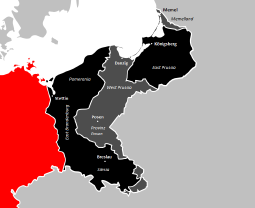
Germany's former eastern territories
Why do so many people have a boner for Germany's old eastern borders? Look at any alt-hist featuring the nation and they still own Pomerania, Silesia, Prussia (East/West) etc. Is it because of aesthetics and looking nice, does /pol/ have anything to do with it, or is it something different?Discuss.

Capitalist here
By marxist standards, I do not provide labor, I own capital. From what I understand, the commie concept of wage labor is "exploitation" in the sense that we take the surplus value you produce. Since this board allows non-leftists to ask questions, mine is, why do you think you have the right to the full product/end result of your labor and not just a small compensation?If I were to pay my wagecucks the full amount, or give them control over my company instead of paying them a pittance, I won't be able to stay competitive and maximize profits.
In capitalist philosophy on the other hand, exploitation requires the use of force. A worker is not forced to work for me for example, they are 100% free to go find a different job or start their own company. I just wanna know your point of view, and why you think you are entitled to your surplus labor.

The question is when
The late 2010's and early 2020's upheavals were predicted 10 years ago by a relatively simple model that accounts for elite infighting, income inequality, number of 18-29 y.o. people, etc. The same analysis was retroactively applied to many civil wars and revolutions throughout history and the results were pretty consistent: wars, revolutions and upheavals follow pretty deterministic patterns. The thing that's impossible to predict, is the trigger, the casus belli. In-depth paper in [1], 2020 prediction in [2].On the other hand the rate of profit is falling (empirically proven in [3]), which makes the contradictions accelerate: median living conditions become increasingly unbearable, inequality between the working population and the elite skyrockets, etc. (coronavirus and climate change are just accelerating even further the process). The question is not if, but when, will capitalism collapse. Two options at that point: regression, the elite fights back and wins (fascism, neo-feudalism, apocalyptic-tier world wars, pick your poison) or progression, the working class fights back and wins (socialism, which means the long term construction of post-scarcity society i.e. communism).
[1]: https://escholarship.org/uc/item/6qp8x28p
[2]: https://www.nature.com/articles/463608a
>Quantitative historical analysis reveals that complex human societies are affected by recurrent — and predictable — waves of political instability (P. Turchin and S. A. Nefedov Secular Cycles Princeton Univ. Press; 2009). In the United States, we have stagnating or declining real wages, a growing gap between rich and poor, overproduction of young graduates with advanced degrees, and exploding public debt. These seemingly disparate social indicators are actually related to each other dynamically. They all experienced turning points during the 1970s. Historically, such developments have served as leading indicators of looming political instability
>Very long 'secular cycles' interact with shorter-term processes. In the United States, 50-year instability spikes occurred around 1870, 1920 and 1970, so another could be due around 2020. We are also entering a dip in the so-called Kondratiev wave, which traces 40-60-year economic-growth cycles. This could mean that future recessions will be severe. In addition, the next decade will see a rapid growth in the number of people in their twenties, like the youth bulge that accompanied the turbulence of the 1960s and 1970s. All these cycles look set to peak in the years around 2020.
[3]: https://mpra.ub.uni-muenchen.de/55894/1/MPRA_paper_55894.pdf
>The downward trend of the rate of profit, its empirical confirmation, highlights the historically limited nature of capitalist production. If the rate of profit marks the vitality of the system, the logical conclusion is that it approaches further to an endpoint.
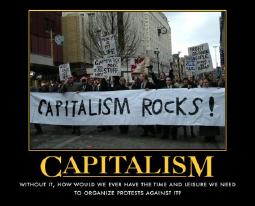
Marx on "Arbitrary Profit"
In Section VI of Wages Price and Profit, Marx explains that prices approximate the true value of a commodity, but only over time as supply and demand average out. Having established this, he goes on to argue against the fallacy that profit is obtained by selling commodities above their value:>If then, speaking broadly, and embracing somewhat longer periods, all descriptions of commodities sell at their respective values, it is nonsense to suppose that profit, not in individual cases, but that the constant and usual profits of different trades spring from surcharging the prices of commodities, or selling them at a price over and above their value. The absurdity of this notion becomes evident if it is generalized. What a man would constantly win as a seller he would as constantly lose as a purchaser. It would not do to say that there are men who are buyers without being sellers, or consumers without being producers. What these people pay to the producers, they must first get from them for nothing. If a man first takes your money and afterwards returns that money in buying your commodities, you will never enrich yourselves by selling your commodities too dear to that same man. This sort of transaction might diminish a loss, but would never help in realizing a profit.
Marx's argument against a fallacy rampant in the present day seems like it would be incredibly useful to learn, I cannot for the life of me parse what he is talking about. Thus, instead of ignoring this aside I come to /edu/'s help in making sense of it. To break it down:
<What a man would constantly win as a seller he would as constantly lose as a purchaser.
If every transaction in capitalism can be understood abstractly as buyers and sellers entering a marketplace - representing supply and demand by changes in stalls, shoppers, and salesmen, for instance - then each transaction with an arbitrary percentage of profit x applied would even out. This is what I assumed this sentence to mean at first. But even if this were the case, could each successive capitalist in the line from raw material to finished product not add a surplus onto the successively increasing true value of the increasingly complex commodity? Marx might say that the competition between capitalists (ignoring supply and demand, which self-cancel) would force this arbitrary "profit" to increasingly diminish to almost nothing if it were to ever exist at all, and force them to reduce the labor cost of their commodidies by increasing their productive forces. But I don't see a point where this bastardization of Marxist theory would reach a contradiction, resolving itself into the correct understanding. Where is the error here? Either way, it turns out the rest of the paragraph seems to have nothing to do with any of this.
<It would not do to say that there are men who are buyers without being sellers, or consumers without being producers.
It feels like it ought to be phrased the other way around - sellers without being buyers - when talking about a business making profit during sales, which must of course buy raw materials, land, and the MoP from another source. But I ignored this as a stylistic deviation, until the next sentence:
<What these people pay to the producers, they must first get from them for nothing.
"These people"? Who? The capitalists? The sellers of labor power? Who are the producers? Why is there a dual-transaction taking place here?
<If a man first takes your money and afterwards returns that money in buying your commodities, you will never enrich yourselves by selling your commodities too dear to that same man. This sort of transaction might diminish a loss, but would never help in realizing a profit.
This is the point where the absolute abstraction loses me entirely. Is the man "taking my money" another capitalist, who makes a profit off of me in selling me raw materials but loses his profit as he buys from me? Would this really even out, if you were to take it to its logical conclusion mathematically?
It seems this cursory, metaphorical refutation is much harder for me to grasp than a refutation in the form of a full analytical explanation of how the system actually works, which makes up the rest of the text. If someone could put it to me in plain terms I would greatly appreciate it, and I would hope other anons could use it to teach others as well.

The Leninist root of Third Worldism (Maoism)
>Those workers (proletarians) in the developed countries who benefit from the superprofits extracted from the impoverished workers of developing countries form an "aristocracy of labor". The phrase was popularized by Karl Kautsky in 1901I'm noticing this really is a recurring theme with Lenin, but I'll leave this for another thread…
>and theorized by Vladimir Lenin in his treatise on Imperialism, the Highest Stage of Capitalism. [b]According to Lenin, companies in the developed world exploit workers in the developing world where wages are much lower. The increased profits enable these companies to pay higher wages to their employees "at home" (that is, in the developed world), thus creating a working class satisfied with their standard of living and not inclined to proletarian revolution. It is a form of exporting poverty, creating an "exclave" of lower social class. Lenin contended that imperialism had prevented increasing class polarization in the developed world and argued that a workers' revolution could only begin in one of the developing countries, such as Imperial Russia.[/b]
By contrast, the definition within revolutionary syndicalism is that trade union bureaucracy, 'yellow unions', or social democratic unions were labelled 'labor aristocracy', (the IWW for example instead being a revolutionary industrial union, created within the orthodox Marxist theories of De Leonism).

early burger history
I'm teaching US History I to high schoolers next year; if I can pill the more curious students (in a non-obnoxious way), that's obviously ideal.Things I'm looking for:
1) Rapidly catching up on my own knowledge of the period. I know a bit, but US history I'm weaker on than in most subjects despite being a burgerlander myself.
2) "Antiracist" teaching resources that don't suck. I'm in a metropolitan area in the northeast so the hold of radlib thinking over the profession is quite strong; but this seems more of an opportunity to me than a problem in this case because there's a lot of overlap in themes (settler colonialism, exploitation in slavery, the construction of race, skepticism towards "patriotic" narratives, &c.) and that gives latitude to introduce things related to that even when it doesn't slot in easily to the official curriculum. Books are good, but non-book resources are better, since I love books but most high schoolers don't.
3) From those who teach HS or lower, anything more generally that they'd recommend re: navigating the profession etc (although maybe that's something that deserves a separate thread)

Lets Study Cinema History
Quote from the Soviet film "The Great Citizen" (1937):"Oh, twenty years after a GOOD WAR, get out and take a look at the Soviet Union - composed of lets say thirty or forty republics."
On January 1, 1937 as part of the so-called USSR there were only 11 republics, implying that that USSR has planned to annex at least 20 European states during WW2. Communist propaganda also portrayed total war as something "good".
After the war the propaganda has drastically changed, now claiming that USSR is the "Bastion of Peace" (СССР оплот МИРА). But there is a catch, since in Russian language both "peace" and "world" have the same word "mir" (МИР). So when a Russian says "we need mir", he can mean botch "we need peace" and "we need the whole world".

I've been working on formatting Black Bolshevik into EPUB and webpages to make it more accessible, as it's a very long book. At the moment chapters 1-3 are finished. Please contribute if you have the time.
https://github.com/scaredporky/scaredporkylib

Obscure Soviet Vehicles (and Regular Ones too, why not)
Just saw this video on the Soviet Antarctic ice cruisers called Kharkovchanka, and thought it was pretty good.And I remember seeing here and there in all manner of different threads stuff like Soviet nuclear icebreakers and massive scaled naval hovercraft.
So I figure weird and supercool Soviet vehicles like those would be a great topic for an /edu/ thread,
as well as any normal Soviet vehicles of course because they're cool too.
https://youtu.be/f6R-h06IsJw

Graphene General
I guess lots of people are somewhat skeptical it'll be anything, since a bunch of media outlets hyped it up a decade ago and nothing came of it,but they were hyping up its discovery then, when it was still a whole world away from the production process.
From what I understand, silicon was much this way at first as well; groundbreaking discovery but a long time before they could figure out mass-production and implementation.
Now it seems at last the stuff is ready to be mass-produced and the actual production line is ramping up, and consumer products with marginal amounts of the stuff are already available.
So this thread will be for general discussion about what graphene is capable of and its implementations,
as well as for advancements in the production process and availability of graphene.
Some articles:
https://www.digitaltrends.com/cool-tech/what-is-graphene/
http://news.mit.edu/2018/manufacturing-graphene-rolls-ultrathin-membranes-0418
https://phys.org/news/2020-07-solar-cells-graphene-armor.html
https://www.zmescience.com/science/graphene-clothes-thermal-regulation-18062020/
https://newatlas.com/bicycles/graphenlube-graphene-bicycle-lubricant/
https://www.knowablemagazine.org/article/technology/2019/graphene-2d-materials
It's coming.

I am constantly feeling sleepy. I cant say wheter this is normal or not. Like, I dont know in which moment it becomes pathological.
I rather dont have serious issues if any at all when talking. I rarely go into internal monologues but when I do explain something I dont have significant problems. Thinking seems to work well in theory but I am somewhat unsecure wheter I dont think too slow too. In my life I rather had at least average intellectual abilities but when I deal with abstracts it doesnt work too well.
Whenever I do read something, no matter wheter it is philosophical, political or fictional work, I am getting tired very quickly which makes productive reading very hard for me. The fact that focusing and remembering stuff also seems to be generally hard for me doesnt help.
I can recall various things when I try but still its quite hard to go on with the reading for prolonged time. I can also comperhend the material quite well if I really slooowly study it, but it seems like I am getting way to slow than I should go with it. Whenever I try to read regularly I fail. I also have impression that reading on the pc is easier for me than reading real books, although when I read the digital books I get distracted easier.
I really think that I could read something with the interest if I wouldnt feel so fuuucking tired all the time, I dont do anything interesting anyway and I like theory.
I also lack motivation, but I think that I could overcome this if not the tiredness (Or perhaps I somewhat rationalize my lack of motivation with the tiredness problem).
So basically Id have few questions for you guys:
Did or do you have simillar situation to me? What could cause it? Is there any way to get rid of it or to cope with it?
If you read regularly, how long did it take you to get used to it? Did you have problems with focus and memory and did they have gone after some time? How did you managed to form a habit of reading in the first place?
Perhaps something more will come out later or Ill recall something more on that problem of mine.

https://maozhuyigongchandang.wordpress.com/2020/04/23/%E5%85%9A%E5%91%98%E6%9C%88%E6%8A%A5-party-members-monthly-13/
>Soon after the founding of the People’s Republic of China, Chairman Mao’s policies of improving sanitation and medical access led to a population boom that was previously inconceivable due to wars, famine and disease. Some people were worried that such a large population would be difficult for China to handle, in response to them, Chairman Mao declared:
>> “It is a very good thing that China has a big population. Even if China’s population multiplies many times, she is fully capable of finding a solution; the solution is production. Of all things in the world, people are the most precious. Under the leadership of the Communist Party, as long as there are people, every kind of miracle can be performed. We believe that revolution can change everything and that before long there will arise a new China with a big population and a great wealth of products, where life will be abundant and culture will flourish.”
>Mao taught us that China’s expanding population was a good thing, and that population control was a tool used by imperialist powers to weaken the rising states. Subsequently, import of contraceptives was banned, birth control was increasingly condemned. A few years into this campaign, China saw a large hike in population growth, in 1955, some areas briefly re-allowed birth control, but fortunately this was curbed by the Great Leap Forward, in 1958. According to the secretary of Communist Youth League Hu Yaobang:
>> “A larger population means greater manpower, the force of 600 million liberated people is tens of thousands of times stronger than a nuclear explosion. Such a force is capable of creating wonders which our enemies cannot even imagine. Facts since the Great Leap Forwards movement have sufficiently proved this point.”
Thoughts?
Does quantity truly have a quality all of it's own?

italian vs spanish political catholicism
I'm reading Dylan Riley's [Civic Foundations of Fascism](https://b-ok.cc/book/5440703/4e76ad) and liking it quite a bit, but one thing that comes out pretty clearly is that while political Catholicism in Italy before and shortly after WWI had an independent and relatively "leftist" streak - lots of independent workers organizations and so on, probably most people reading this are familiar with the PSI/PPI alliance that might have been able to weather through the fascist threat if they could agree over some smaller stuff - Spanish political Catholicism was much more uniformly reactionary and under the direction of local landowners. And this happens despite obvious similarities between the countries - semiperipheral position in world-economy, historical catholicism obviously, very old "republican" associational traditions in the big cities, a liberal political system organized around clientelism and smoke-filled rooms.When I (or Riley for that matter) try to think of why political Catholicism in Italy would turn against the system, I think of things like "well the state built its power by crowding against the church, which in turn believed it was going to get wiped out by a cabal of freemasons" but that's obviously true of Spain as well, which IIRC actually built up even more bad blood with land reform and so on. And if I think of why they'd be dependent in Spain it's things like "well big landowners used the church to control peasants," and it's not clear why that wouldn't be true in Italy as well - in fact Riley emphasses how in each case local notables organized each initially, but then they became independent in Italy by the 1890s and never really in Spain.
Maybe it's just something like "Italy had higher literacy rates and it's that much easier to self-organize?" But of course it's not like illiterate peasants never get mobilized by the left either.


